

November 2025 Volume 35 Issue 6
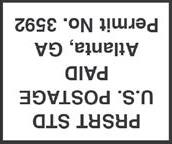





November 2025 Volume 35 Issue 6



When it comes to senior living, you want more than a place to live — you need a place to thrive. That’s why at Brookdale University Park, we help take care of the challenges of aging for you.
Amenities:
• Variety of floor plans
• Social events and activities
• Walking paths
• On-site putting green
• Pet-friendly accommodations
• Close to medical and shopping centers
To learn how we can help you connect with new friends and interests, call (205) 506-0214 today.
Brookdale University Park
Independent Living | Assisted Living Alzheimer’s & Dementia Care | Rehabilitation & Skilled Nursing 400 University Park Drive | Birmingham, Alabama 35209


Publisher/Editor
Lawrence Brook editor@sjlmag.com
Associate Publisher/Advertising
Lee Green lee@sjlmag.com
Creative Director
Ginger Brook ginger@sjlmag.com
Social/Web
Emily Baldwein connect@sjlmag.com
Contributing Writers
Rivka Epstein, Belle Freitag, E. Walter Katz
Columnist
Doug Brook brookwrite.com
Birmingham office: P.O. Box 130052, Birmingham, AL 35213
New Orleans office: 3747 West Esplanade Ave., 3rd Floor, Metairie, LA 70002 (205) 870-7889 • (504) 249-6875 (888) 613-YALL (9255)
ADVERTISING: Contact Lee Green, (205) 870-7889, lee@sjlmag.com
SUBSCRIPTIONS: Subscriptions for the print edition are $30 for one year, $48 for two years. Paid subscribers to our Substack site also receive the print edition.
Copyright 2025. All rights reserved. No part of this publication may be reproduced in whole or part without written permission from the publisher. Views expressed in SJL are those of the respective contributors and are not necessarily shared by the magazine or its staff. SJL makes no claims as to the Kashrut of its advertisers, and retains the right to refuse any advertisement.
Documenting this community, a community we are members of and active within, is our passion. We love what we do, and who we do it for.

subscribe, email subscribe@sjlmag.com
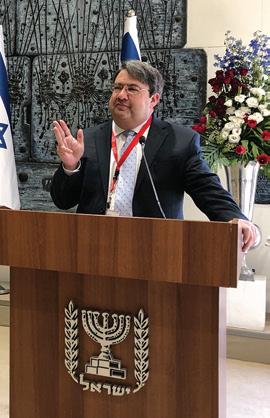
As the topic of antisemitism has made an unwelcome comeback in recent years, especially the past two, and as it has become the overwhelming elephant in the room communally, a recent exchange that happened in Alabama is quite notable.
Elsewhere in the country, the misguided stereotype of the Deep South as a hostile wasteland for Jews stubbornly persists, even as the climate has shifted to the point where it is being noticed nationally that the South is much less of a hostile battleground for Jews than areas previously considered “safe.” While there certainly have been incidents, and more than there used to be, the atmosphere in the South pales in comparison to other parts of the country.
Still, the headline “Antisemitism is Dead in Alabama” in the Alabama Political Reporter definitely caused many a double-take. The opinion piece was written by Will Sellers, an associate justice on the Alabama Supreme Court.
That piece, along with a response, “Is Antisemitism Truly Dead in Alabama?” by Phil Ensler, the only Jewish member of the Alabama Legislature and executive director of the Jewish Federation of Central Alabama, are on our Substack site in the opinion section.
In his piece, Sellers talks about the “silliness of discrimination” as exhibited through segregation, and noted that despite our own challenges, the Jewish community persevered and became tremendous contributors to society, with achievements that “were never fully appreciated, acknowledged or recognized.”
He said “While antisemitism from both the left and right has reasserted itself in other states, Alabamians stand with our Jewish brothers and sisters,” and called hate based on faith “backward and antiquated.”
Of course, a couple immediate thoughts come to mind — but after that, a second thought is warranted.
To a Jewish reader, of course, the idea that antisemitism is dead anywhere, including Alabama, is absurd. For someone who isn’t Jewish to make that declaration is, to adapt a term often found in the academic and activism world, a form of “gentile-splaining.”

The QR code to our new Substack site. Subscribe today!

Southern Jewish Life is an independent Jewish periodical. Articles and columns do not necessarily reflect the views of any Jewish institutions, agencies or congregations in our region.

To subscribe, email subscribe@sjlmag.com


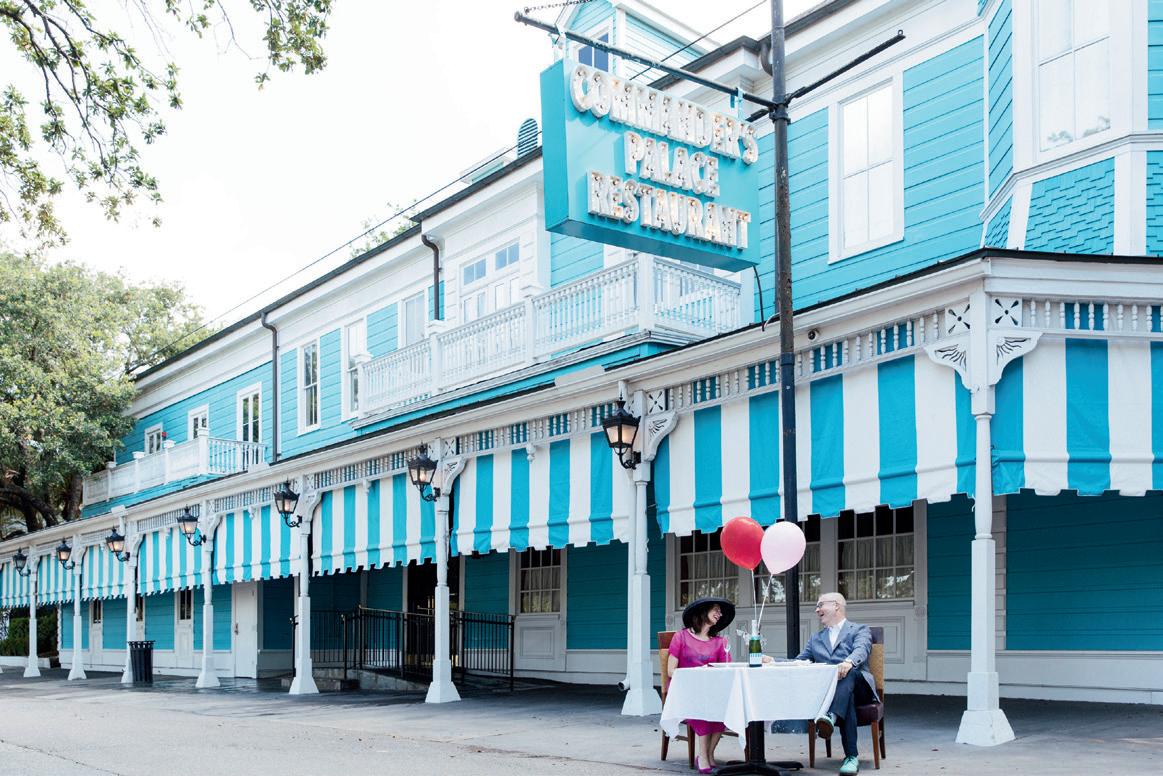
Antisemitism can’t possibly be dead when every time a Jewish institution opens its doors, they have to be guarded by police or security officers. When churches have police officers on hand, it is to direct traffic.
If antisemitism is dead, there would be no need to condition attendance at events on preregistering, or have the oft-used “location given upon registration.”
While far-left groups that seem to be the driving force behind much of today’s antisemitism aren’t as prevalent in this deeply red region, and there is far more appreciation for Israel and the Jewish people based on modern Christian teachings, there is a growing concern over the resurgence of conspiracy theorists and a new wave of right wing provocateurs, in the form of Tucker Carlson, Candace Owens and Marjorie Taylor Greene. Many on the right are echoing William F. Buckley when he drummed the likes of Pat Buchanan out of the conservative movement, may their efforts be successful.
But despite professed love and appreciation, there are still other issues in the state that keep the Jewish community from feeling completely content.
For a lot of Jews in Alabama, hearing “Al-
abama Supreme Court” brings up images of former Chief Justice Roy Moore, twice removed from office, the first time for refusing court orders to remove a 5,300-pound Ten Commandments monument he installed in the building in the middle of the night.
That lengthy battle is but one of several church-state fights we have covered in the past three decades, and while the vehement response when someone challenges the status quo in such a heavily Christian state as Alabama is not necessarily a form of antisemitism, it does drive home that the Jewish community is not quite equal in the public square, and the majority still feels it can exercise its religious power in places that are designed to be neutral or secular.
As “the other,” there is a heightened sensitivity in the Jewish community to the demagoguing of other “others,” such as the LGBTQ or immigrant communities, as love for one’s fellow person all too often disappears inside the statehouse door.
But even with all this, take a step back and look at Sellers’ piece from a historical standpoint. As noted before, the Deep South has a reputation elsewhere as a hateful wasteland for Jews. That didn’t come out of thin air — it
was earned. It wasn’t just segregation, antisemitism was also a staple of political campaigns. There’s a long list of politicians in the 1940s, 1950s and 1960s who used Jew-baiting as part of their stump speeches. One such speech by Admiral Crommelin — a World War II hero who ran for governor — was part of the inspiration behind the firebombing of the synagogue in Gadsden.
Jews were seen as the hidden hand behind desegregation, trying to ruin the Southern way of life. It goes back even further, with the accusation of “Jew money from New York” trying to buy justice in Alabama in the case of the Scottsboro Boys in the 1930s.
In Birmingham in the 1950s, as people moved over the mountain, Jews could move to certain parts of Mountain Brook, but not at all to Vestavia.
And of course, it goes without saying that the Ku Klux Klan was the enforcement arm, trying to make sure that local Jews also knew our place and did not get out of line.
Fast forward to 2025, and one of the highest elected officials in the state is ridiculing segregation and discrimination, and has no
continued on page 22
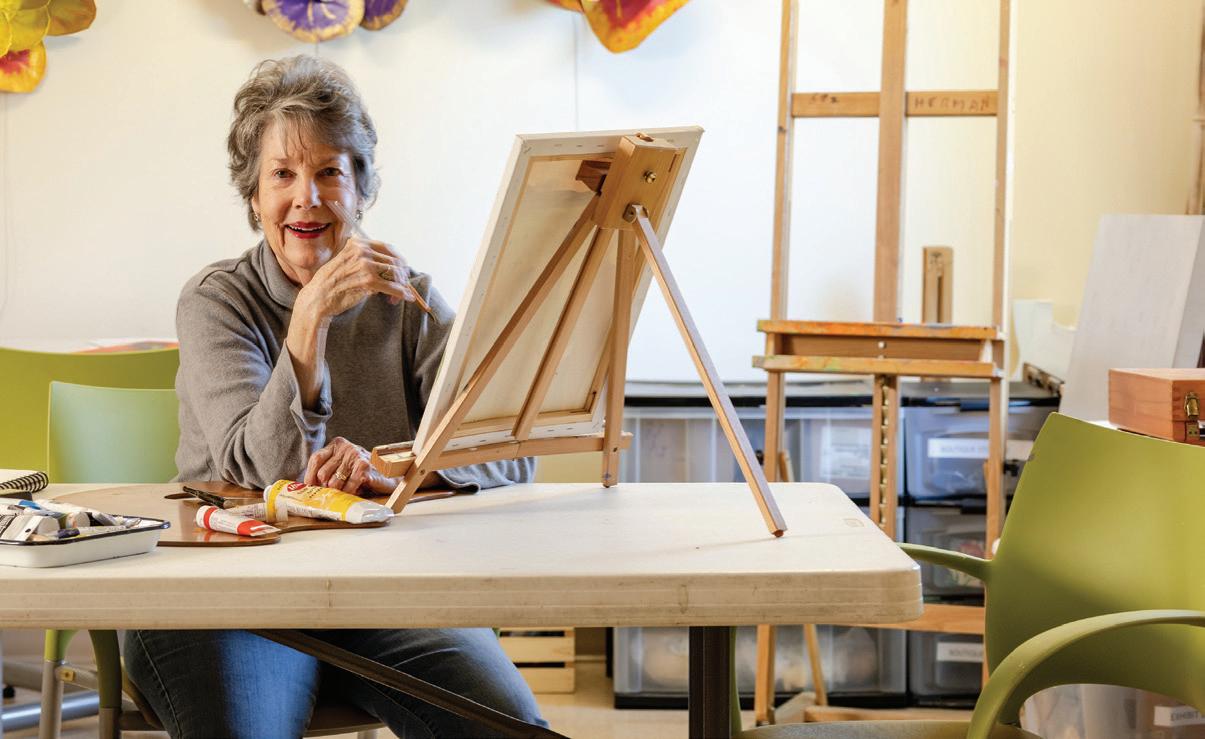
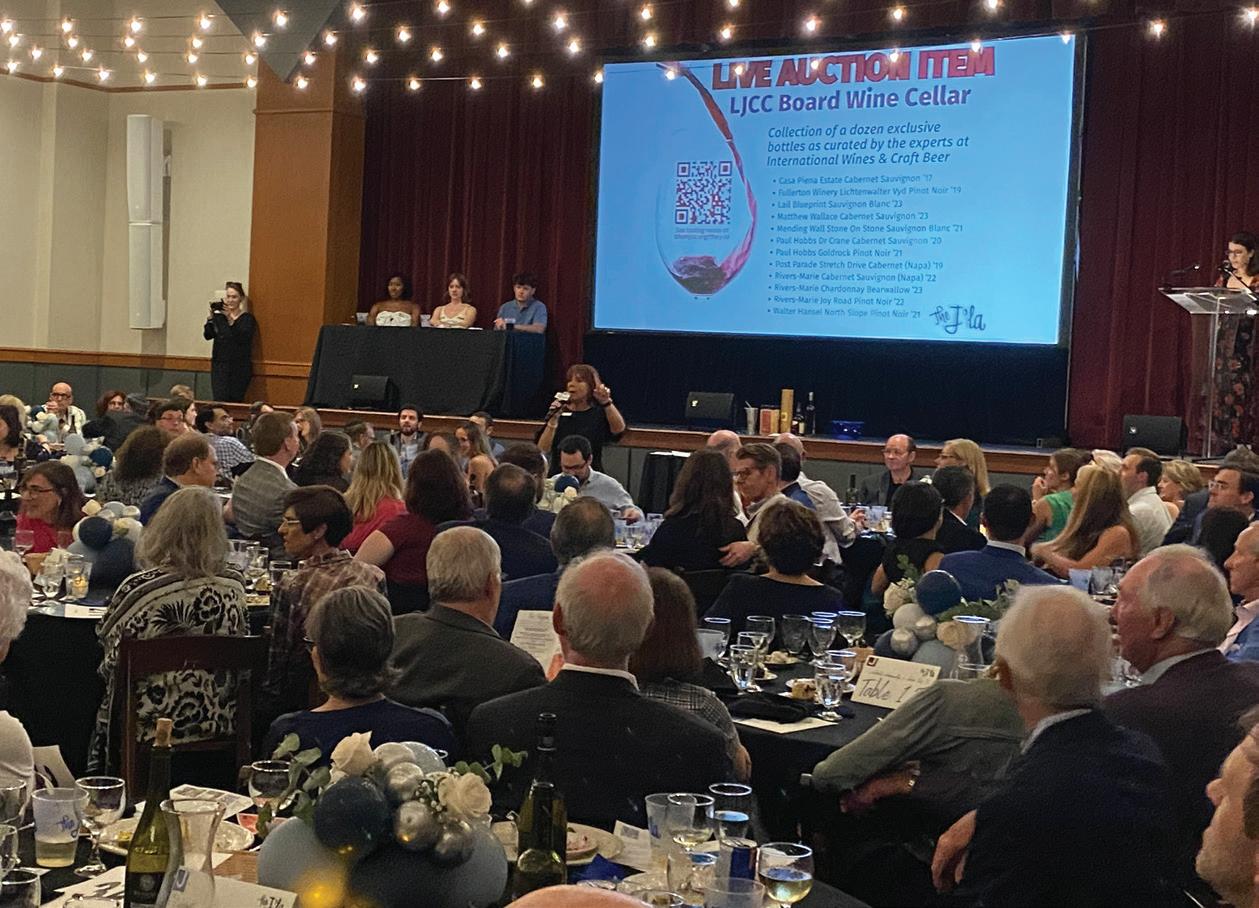
On August 21, Birmingham’s Levite Jewish Community Center set a new record with its fourth annual J’La gala, raising over $204,000 for LJCC programing. This year’s focus was the LJCC’s role in serving the Birmingham community, especially as proceeds from the J’La help fund scholarships making the facility accessible to more people.
Limmud New Orleans, a regional day of Jewish learning, is returning on March 8, at the Uptown Jewish Community Center.
Limmud is a pluralistic approach to Jewish learning, with a wide range of topics and tracks, from text study to pop culture, history to the arts, current events to Jewish food, all under one roof and taught by community volunteers. Most presentations are done by locals, but some national figures also volunteer to come in and run sessions.

This is the first Limmud in New Orleans since 2023. Until 2018, it was held every other year, but the 2020 festival was cancelled by Covid, and there was a virtual Limmud in 2021. At the 2023 Limmud, there were over 70 sessions, in addition to teen and children’s programs.
There has been an emphasis on making the New Orleans event a regional draw, with participation from nearby communities.
A call has gone out for those who are interested in leading a session on a topic of their choosing. Proposals are being accepted on a rolling basis.
Sponsorships are also available. Currently, the event is sponsored by the Franco family, the Jewish Endowment Foundation of Louisiana, Jewish Federation of Greater New Orleans, Gail and Stewart Chalew, and Lis and Hugo Kahn.
Limmud New Orleans is part of an international Jewish learning effort. There is a Global Day of Jewish Learning on Nov. 9, where over 10,000 people around the world participate at synagogues, JCCs and other institutions, doing shared study of sacred texts. In this region, Temple B’nai Sholom is participating.
There is also a Limmud Dallas on Feb. 15, and Ramah Darom in north Georgia will host LimmudFest from May 21 to 25. While the Atlanta-based event at Ramah Darom usually has taken place over Labor Day weekend, it is moving this year to take advantage of the convergence of Shavuot, which begins the evening of May 21, and Memorial Day on May 25.
Registration information will be announced later.

Catering everything from office lunches to B’nai Mitzvah to private dinners in your home
Holiday Catering • Shabbat Dinners to Go
3633 Annunciation Street, Uptown New Orleans
Tel:(504) 354-9878 www.bodega-nola.com

Mon-Fri: Lunch: 11am-3pm; Grab-and-Go: 4:30pm-6pm Sat & Sun: Breakfast: 9am-3pm, Lunch: 11am-3pm

Tulane Hillel and the Jewish Community Relations Council of the Jewish Federation of Greater New Orleans will present “Voices of Leadership: Jewish Representation in Public Life,” a student-led and moderated panel discussion, Nov. 12 at 6 p.m. Admission is free, there will be food by Rimon.
Speakers will be New Orleans Council Member Joe Giarrusso, Criminal District Court Judge Simone Levine, and Arnie Fielkow, former New Orleans Council member and council president.
They will share their personal journeys and insights from their time on the campaign trail and in public office, and explore the challenges and opportunities of serving in government and the role of Jewish identity in public life.
Giarrusso is finishing his second term as councilman for District A, and did not seek reelection or another office. He has chaired the council’s bidget committee, championed infrastructure upgrades and founded the New Orleans Mental Health Collaborative.
Levine was elected in Section A in May 2023, and her court is known for its trauma-informed approach and community-focused model. Before becoming a judge, she was a homicide prosecutor, public corruption prosecutor, public defender and private criminal defense attorney. As director of Court Watch NOLA, she worked as a community monitor of the New Orleans criminal courts, uncovering public concerns that included ethical breaches in the ankle monitoring industry and crime victims incarcerated on phony DA subpoenas. And from 2011-2016, Judge Levine served as the Deputy Police Monitor in the New Orleans Office of the Independent Police Monitor.
Fielkow entered politics after serving as executive vice president of the New Orleans Saints, serving on the city council starting in 2006, then becoming council president. He then left to become the head of the National Basketball Retired Players Association, returning to New Orleans in 2017 to become CEO of the Jewish Federation of Greater New Orleans. Now retired, he advocates for Ukraine and is associate treasurer of Maccabi USA.
The Kol Zimrah Jewish Community Singers out of Chicago will perform at a community concert in Montgomery, as part of their “Building Bridges: A Musical Journey for Justice” tour.
The Nov. 10 performance will be at Temple Beth Or at 6 p.m., and is free to the community. A reception will follow, jointly sponsored by the Jewish Federation of Central Alabama, Temple Beth Or, and Agudath Israel-Etz Ahayem.
The choir is celebrating its 30th anniversary, having formed in 1996 under the leadership of Cantor Richard Cohn as an outgrowth of a chorus assembled for the Jerusalem 3000 events in Chicago. It was formed to give lay singers a high-quality experience as part of the global Jewish choral movement. Members come from 15 congregations and unaffiliated lovers of Jewish music, blending community members from multiple strands of observance or non-observance.
The choir has partnered with Ayelet Tours on the civil rights journey, which will begin in Atlanta on Nov. 7. They will perform at The Temple in Atlanta on Nov. 9, with The Temple’s choir and the Holy Blossom Temple’s choir.
On Nov. 10, they will tour civil rights sites in Montgomery before the concert. On Nov. 11, they will visit Selma and cross the Edmund Pettus Bridge, then travel to Birmingham for a visit to the civil rights district, before heading back to Chicago on Nov. 12.
The annual Jewish Food Festival at Montgomery’s Temple Beth Or has been a signature event for years. Now, the festival is expanding to include an art fair, and a call has gone out for artists in the region.
The festival will be Feb. 22 from 11 a.m. to 2 p.m.
Interested artists can apply online at Templebethorartfair2026.artcall.org. Submissions are due by Dec. 15, after which there will be a juried process to select exhibitors. The $25 booth fee provides an 8-foot square or triangular space. Submissions should be appropriate for an event that draws all ages, and no political art.
Soul Talk, a new gathering for anyone in active recovery or seeking spiritual growth, is now meeting on Mondays at 6 p.m. at Bais Ariel Chabad in Birmingham. The weekly group is coordinated by Scott Cohen and Barry Labovitz, and debuted on Oct. 20.
The informal meetings start with meditation to quiet the mind and connect in the moment. A topic leader will then share a short reading or reflection relating to recovery, spirituality or personal growth. The floor is then open for participants who want to share their experiences.
Acknowledgements of milestones are especially encouraged.
Performance at Emanu-El on Nov. 16
While Passover is themed to physical slavery in Egypt, there is also a modern-day personal slavery that comes from addiction.
When “Freedom Song” is performed at Birmingham’s Temple Emanu-El on Nov. 16 at 2 p.m, it won’t be the usual cast of actors. All of the performers are addicts in recovery through Beit T’shuvah, a treatment center in Los Angeles.
Through song and dance, they weave the question of “what are you a slave to?” through the Passover story and their own stories about drugs, alcohol, gambling and other destructive behaviors, and how they are breaking their shackles.
The program will include a question and answer session with the cast, and there will be a teens-only conversation after the play.
Registration for the free program is available on the Emanu-El website.


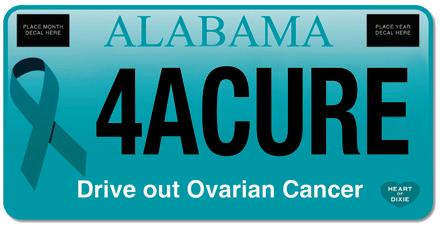
Alabama is one of three states who currently have an ovarian cancer car tag. The Drive Out Ovarian Cancer car tag raises money for research in hopes that one day, doctors will discover an early detection test for ovarian cancer, so that women will be tested for this insidious disease at their annual checkups just like cervical and breast cancers.
The mission of the Norma Livingston Ovarian Cancer Foundation (NLOCF) is to raise funds for ovarian cancer research and to increase awareness about the risks, symptoms and treatments of this disease.
The net proceeds of the $50.00 are distributed to the NLOCF to be used for ovarian cancer research at the UAB hospital. The Norma Livingston Ovarian Cancer Foundation is a 501(C)(3) nonprofit organization. Your $50 contribution is tax-deductible.
The Jewish Endowment Foundation of Louisiana will celebrate the new moon for Kislev with its 2025 Women’s Event, an afternoon of spirituality and connection.
Sarah Waxman, CEO of At The Well, will be the featured speaker. The program, on Nov. 20 at 11:30 a.m., is presented in partnership with Hadassah New Orleans and the New Orleans Section of the National Council of Jewish Women.
Waxman, who has extensive experience in sociology and holistic medicine, as well as being a national champion athlete and certified instructor in yoga and mindfulness, has led New Moon Circles in person and virtually for years. In Jewish tradition, the New Moon, the beginning of each Hebrew month, has been a woman’s festival, and Kislev is a season for visioning and listening inward.
At the event, Waxman will create “a supportive, inclusive environment where everyone can deepen their connection to faith, tradition, and each other.”
The event will explore Kislev’s mystical themes, and include guided meditation and reflection, and interactive integration activities. There will also be a kosher-style dairy lunch.
Reservations are $36, location will be given upon registration.
205-999-8021 cureovariancancer.org


While the Jewish world celebrates the recent return of the last living hostages from Gaza, there is also an acknowledgement that the past two years have taken an incredible mental toll on many in the community.
In Birmingham, Collat Jewish Family Services is recognizing that by organizing a wellness retreat for members of the Jewish community. They are partnering with mental health and wellness nonprofit Contenu on the Nov. 13 day of restoration and self-care, which will be held at The Sonnett House in Leeds from 8:30 a.m. to 3 p.m.
Lauren Schwartz, executive director of CJFS, said the past two years have been difficult for the Jewish community, as “repeated acts of antisemitism, violence and hatred toward us, as Jews, are more prevalent than any time in my memory.” While the past two years aren’t necessarily the most difficult in all of Jewish history, it has been “stressful, hard and sad, nevertheless.”
She added, “it is critical to intentionally raise our self-awareness, nurture ourselves, and restore ourselves. We need to ‘refill our cup,’ as my grandmother would say, so that we can begin to heal and continue to live with joy, intention and purpose.”
The day includes chair yoga with Becca Impello, a drum circle with John Scalici, an art project with Avivi Behel, 55-word stories with Elizabeth Vander Kamp, and breakfast and lunch by Kimberly Brock of Bitty’s Kitchen.
The free retreat is open to Jewish community members, lay leaders, professional staff and clergy, and to non-Jewish allies who serve as lay leaders and staff of Jewish congregations and institutions. Space is limited and registration is required.
Hadassah Birmingham will have its Mah Jongg Mixer on Nov. 18 from 11 a.m. to 4 p.m. Address will be given upon registration, which is $54 and includes lunch. Proceeds benefit the two Youth Aliyah villages. The mixer is co-sponsored by the Beth-El and Emanu-El Sisterhoods.
The 17th annual Turkey Train at the Unified Jewish Congregation of Baton Rouge will be on Nov. 9. Checks toward the effort can be sent until Nov. 3, and each turkey is $32.
Sea Shul on 30A will have a Friendsgiving Shabbat with Rabbi Josh Lesser, an evening of gratitude, food and community spirit. The location and potluck information was not available at press time. The event will be on Nov. 21 at 5:30 p.m., following the 4 p.m. congregational annual meeting.
Etz Chayim in Huntsville will have a Shabbaton with Rabbi Stephen Listfield. On Nov. 14, there will be a group dinner at Red Robin in Jones Valley at 5:30 p.m., followed by Shabbat services at 7:30 p.m. He will lead services on Nov. 15 at 9:45 a.m., followed by a luncheon, and there will be a brunch on Nov. 16 at 9:45 a.m., in memory of Ted Roberts.


The Klezmatics, the only Klezmer group to win a Grammy, announced they will visit Baton Rouge as part of their 40th anniversary tour, Jan. 21 at the Manship Theatre.
Trinity Episcopal Church in Hattiesburg is hosting Temple B’nai Israel for dinner on Nov. 13 at 5:30 p.m. They are providing sides, participants are asked to bring their own proteins for the grill masters.
The Jewish Federation of Central Alabama will have its annual meeting on Nov. 19 at 6 p.m., at the Federation offices. There will be wine and hors d’oeuvres.
The University of South Alabama will hold its annual celebration of additions to the Agnes Tennenbaum Holocaust Library Collection, presented by the Gulf Coast Center for Holocaust and Human Rights Education. The reception will be on Nov. 11 at 2:30 p.m. at the Maex Library.
JNOLA, the Next Gen group at the Jewish Federation of Greater New Orleans, is holding a Judaica in the Home art workshop series. The three-part series began in October. On Nov. 13 at 6 p.m., the event with Tribe will be about painting Shabbat candles. The final session, Dec. 3 at 6 p.m. with Temple Sinai, will be creating mezuzah covers. Locations given upon registration, which is $18 per session.
JNEXT, the 40s and 50s group at the Jewish




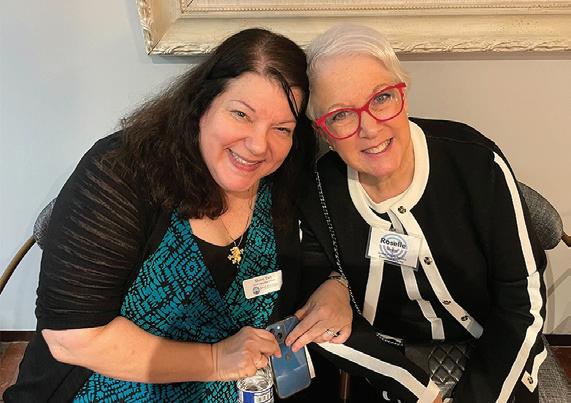
Has served in numerous roles since 1999
Last year, the Jewish Federation of Greater New Orleans honored its chief operations officer, Sherri Tarr, for her 25 years of service to the community through her roles at the Federation.


A year later, that service has expanded further, as she has been named the new CEO. She succeeds Robert French, who left in September to become the CEO of the Jewish Federation of Greater Dallas.
Tarr had been serving as interim CEO, just as she had done when Michael Weil left, and she played a similar role when Arnie Fielkow had to step back in his duties temporarily due to health concerns.
She has served as the Federation’s interim leader four times, but this was the first time she was asked to consider becoming the permanent leader. She said that when French announced he was leaving, then-incoming board chair Melinda Mintz “was on me from the very beginning.”
Tarr has been the COO since 2015, but wanted time to consider whether she wanted the CEO role. “It is a very big responsibility, to represent the New Orleans Jewish community… you have to give it 150 percent. This is not something you can slack on, ever.”
She explained that when October 7 occurred, she was at Disney World for the celebration of her father-in-law’s 90th birthday. Had she been the CEO, she would have left immediately. As it were, she took part in Zoom meetings as the community quickly assembled a gathering for October 9, taking part on the call while on the Mexico ride at Epcot.
She told Mintz that she would be the interim for six months, and “sometime during that time I would let her know” whether she wanted to apply for the permanent position.
“Melinda did not stop asking,” Tarr related. French left on Sept. 12, and Tarr became interim CEO on Sept. 13. Just two weeks later, Mintz was in her office, asking, and Tarr said “for some reason, I just felt like it was the right thing to do.”
But the decision was kept quiet until the Oct. 16 Federation board meeting, as the board has to approve the hiring of a CEO. Tarr said when the subject came up at the meeting, she recused herself and headed home, six minutes away. “By the time I got home, Melinda had texted me,” she said.
“Sherri’s wealth of experience, knowledge and dedication to our community is unique. I know of no one who is better qualified to lead us,” Mintz said. “Thanks to Sherri and the entire staff for their leadership. I’m looking forward to the future and confident in our direction.”
Since joining the Federation in August 1999 as the Women’s Campaign director, Tarr has been Young Leadership director, assistant Campaign director, the Campaign director, development director, assistant executive director and COO.
Though Tarr is moving into the CEO role, as part of the Federation’s streamlining, her previous position of COO will not be filled — she
is maintaining her duties with allocations, the building, repairs, the Katz-Phillips leadership group and security. “All of those things, I am still doing, plus the CEO responsibilities.”
But don’t expect to find Tarr in the corner office on the third floor of the Goldring/Woldenberg Jewish Community Campus in Metairie. She has been in her current space in the middle of the floor since the building opened, and said “this is my office, and this is where I am staying.” She noted that she prefers being in the middle of everything.
There will be some changes, though, such as reducing the Federation’s role in programming. “We’ve been doing so much programming and it has really stretched our staff thin,” she said. They will do “fewer programs, but bigger and better.”
She wants the Federation to partner with agencies and synagogues more than in the past. Often the Federation has done programs that in other cities would be done by the JCC or at a synagogue. The Federation will let other groups take the lead and partner with them.
There will also be a renewed emphasis on popular events related to the Annual Campaign. “Super Sunday was done away with, as was the big push on Give Nola Day,” and she wants both to become priorities again. Both provide volunteer opportunities, and community members like being solicited by fellow community members. In some communities, if there is a phone campaign, it is sometimes outsourced to a company, which may not even be in that city. “Our Super Sunday has always been our New Orleanians calling our New Orleanians. That’s a special connection,” she said.
Super Sunday will return on March 22.
In 2023, the last year Give Nola Day was a major emphasis, the Federation raised $210,000. Last year, with little emphasis given, the Federation brought in $43,000, “still a nice amount, but we were bringing in five times that amount.” In addition to re-emphasizing the day, that evening will be the wrap-up phoneathon from Super Sunday.
The Federation is talking with potential backers for matching funds on Super Sunday and Give Nola Day, which helps donors give more.
Since Tarr started her Federation journey as the women’s campaign director, “I know the campaign inside and out,” and it has “always been a baby of mine.”
She said “we have grown the campaign the last two years, and I want to see it grow further, but I also want to see more volunteers involved in what we are doing.”
As another piece of the Federation streamlining, Charissa Brim was named the Federation’s chief advancement and communications officer. Brim said the new role will “align everything I have been doing in the marketing and communication side of things with the fundraising and development piece,” so the Federation can “be more strategic in all of our communications.”
Tarr also wants to see a community mission to Israel in the near future. There had been plans for a mission in June, but the timing is being revisited. The last community mission was in 2017, with more recent efforts falling victim to Covid and the Gaza war. There was a solidarity mission in March with 11 participants, and the current Katz-Phillips leadership class will take their Israel trip, which had originally been scheduled for this fall, next November.
The Federation will have its annual celebration on Dec. 10 at 7 p.m., place to be announced. As part of the evening, the Herbert and Margot Garon Young Leadership Award will be presented to Megan Yellin. Elene “Lee” Blotner will receive the Oscar J. Tolmas L’dor V’dor Award.
Tarr said she is “just so humbled that they wanted me” to become CEO, and there is “such a feeling that comes over you when people think you are the right person.”
The calls, emails and texts from the community “let me know I have made the right decision.”


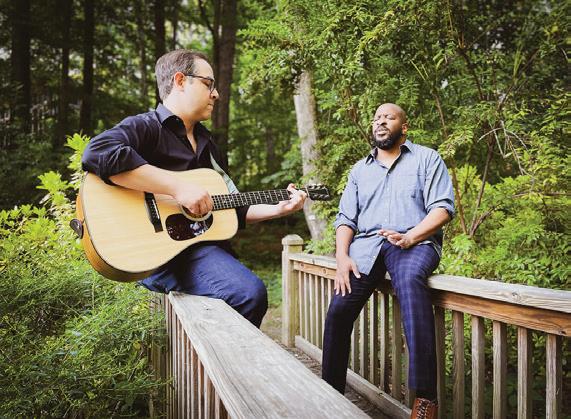




Event will highlight building’s restoration effort
Temple Mishkan Israel, the historic congregation in Selma, will celebrate the 125th anniversary of the dedication of its landmark building with an interfaith and interracial concert, free and open to the commu-
“Rise Up Together: A Musical Celebration” will be on Nov. 16 at 2:30 p.m. Ronnie Leet, one of the last two Jews in Selma, said the event will celebrate Mishkan Israel’s “renewed role as a partner in Selma’s civic and cultural life,” using music to bring people together.
Lapidus & Myles, a dynamic musical duo from Atlanta that brings together Jewish music and Black gospel traditions, will perform. Rabbi Micah Lapidus, composer-in-residence at The Temple in Atlanta, and Melvin Myles, a celebrated soloist formerly of The Historic Ebenezer Baptist Church and now at The National Cathedral in Washington, share an uplifting message of peace, love and justice through their original music.
While the Selma Jewish community has dwindled, the city has a great deal of Jewish history going back to the 1830s. In the early 20th century, it was said that one could roll a bowling ball down Broad Street on Rosh Hashanah and not hit anyone, as so many stores were Jewish-owned and were closed that day. Three of Selma’s mayors came from the Jewish com-
Mishkan Israel was established in 1870 and met at an Episcopal church for 16 years before acquiring its current location. Ground was broken in 1899, and the building was dedicated in February 1900.
The community peaked at around 325 in 1937, dropping to around 200 by 1980. In the late 1990s, an “extended family” was formed for those who now live elsewhere but have ties to Selma’s Jewish past, and two large homecomings were held.
The extended family is now working on a $6 million revitalization campaign to preserve the historic building as a place for learning, celebrations and community events.
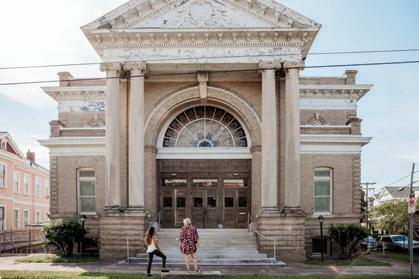
In recent years, the building has been used mainly for community events and civil rights tourism, including an Orthodox congregation holding a Shabbaton over King Weekend in 2017, and major events for the 50th and 60th anniversary Bridge Crossings commemorating Bloody Sunday. The room behind the sanctuary, used for meals and other functions, contains displays about Selma’s Jewish history.
The first phase of the campaign, roughly $3.5 million, will be to restore and revitalize the building, from the original slate roof to restoring the stained glass windows, waterproofing and replacing the ancient “knob and tube” wiring.
The second phase will be for general operating and endowed funds for programming, especially given the prominence of civil rights tourism.


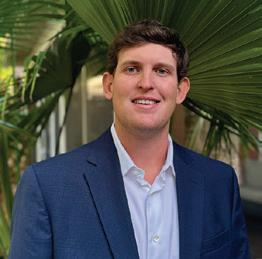




MOUNTAIN BROOK
66-B Church Street, Crestline (205) 871-4583
Monday-Friday 6 a.m. - 2 p.m.
Weekends 7 a.m. - 2 p.m.
CAHABA HEIGHTS
4117 Crosshaven Drive (205) 407-4583
Monday-Friday 6 a.m. - 2 p.m.
Weekends 7 a.m. - 2 p.m.
DOWNTOWN
1500 1st Ave North (205) 844-4583
Monday-Friday 7 a.m. - 2 p.m.
www.crestlinebagel.com
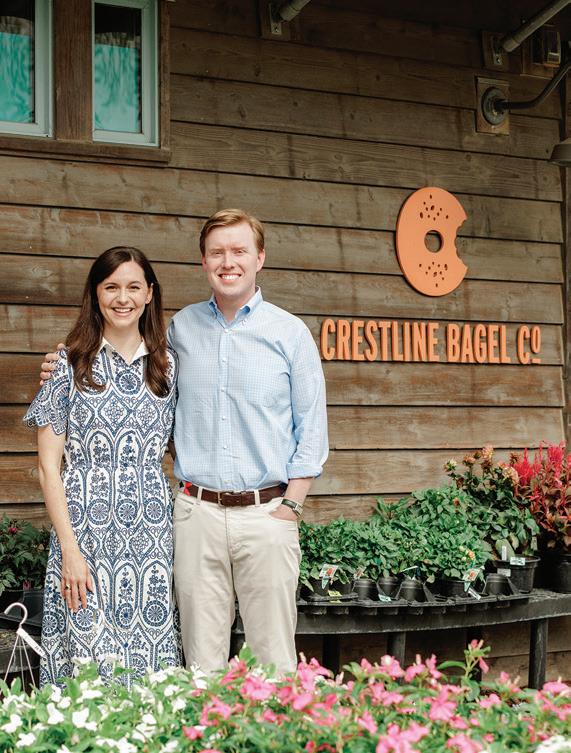


Gazan arrested in Lafayette, alleged to have participated in October 7
A Gaza native currently residing in Lafayette was arrested on Oct. 16 for his alleged involvement in the October 7, 2023 massacre in southern Israel, and for lying about his terrorist affiliations on U.S. visa documents.
According to court documents, Mahmoud Amin Ya’qub Al-Muhtadi, 33, is an operative for the Democratic Front for the Liberation of Palestine’s military wing, the National Resistance Brigades (also known as the Martyr Umar al-Qasim Forces), a Gaza-based paramilitary group that participated in the Hamas-led terrorist attack against Israel.
Hamas and the DFLP have long been listed by the United States as terrorist organizations, and have worked together in the past. In an April 2024 propaganda video by the NRB that Al-Muhtadi shared on social media, the October 7 “Al-Aqsa Flood” was a “joint operation” of Hamas, DFLP and Palestinian Islamic Jihad.
Al-Muhtadi also being charged with visa fraud Tucked away in the heart of Mountain Brook’s Crestline Village, Crestline Bagel has been serving authentic food and supporting our community for over 20 years. We invite you to explore our delicious handmade bagels, breads, spreads and specialty sandwiches at our Mtn. Brook, Cahaba Heights or Downtown location.
Assistant Attorney General for National Security John A. Eisenberg said that when Al-Muhtadi learned of the Oct. 7 attack, “he sprang into action. He armed himself, recruited additional marauders, and then entered Israel, where there is evidence placing him near one of the worst-hit Israeli communities… Subsequently, Al-Muhtadi fraudulently obtained a visa to enter the United States where he hoped to remain undetected.”
Eisenberg added, “This arrest is the first public step in bringing to justice those responsible for harming Americans on that day.”
U.S. Attorney General Pam Bondi called Al-Muhtadi a “monster” and said “While nothing can fully heal the scars left by Hamas’s brutal attack, this Department’s Joint Task Force October 7 is dedicated to finding and prosecuting those responsible for that horrific day, including the murder of dozens of American citizens. We will continue to stand by Jewish Americans and Jewish people around the world against anti-Semitism and terrorism in all its forms.”
U.S. Department of State records show “Mahmoud Almuhtadi” submitted an immigrant visa application to the U.S. from Cairo in June 2024, acknowledging assistance from his wife. According to the application, he had been in Gaza until March 2024, then moved to Cairo. He met with a U.S. consular official in Cairo five weeks later and was fingerprinted, swearing that his application was truthful, including denials of participating in terrorist activities or being part of any terrorist group, or having specialized training in firearms or explosives.

In his application Al-Muhtadi said he would work in car repair or food services in Tulsa, and he arrived in Dallas on Sept. 12, 2024. In June, FBI agents located him in Lafayette, where he has reportedly been working at a local restaurant that has not been identified.
In May 2025, Israel provided information about Al-Muhtadi to the U.S. government, saying he had fled Gaza after participating in October 7.
The Hamas attack on October 7 started at 6:30 a.m. Around 7:53 a.m., Al-Qassam Brigades Commander Mohammad Al-Masri issued a call inviting “the masses” to rise up and join the operation to “kill (Israelis) wherever you overtake them.”
According to the complaint, Al-Muhtadi first learned of the attack at 6:34 a.m., and at 8:12 a.m., after Al-Masri’s call, told others he was going to cross into Israel, and organized a group of armed fighters to join him. They entered Israel at approximately 9:33 a.m.
According to the complaint, Al-Muhtadi’s cell phone pinged the cell tower near Kfar Aza at 10:01 a.m., where Hamas and its supporters massacred around 60 citizens and abducted 19. Included in the total are four Americans who were murdered, and one who was abducted.
Along with an extensive social media history detailing Al-Muhtadi’s connection with terror organizations, in August 2025, the U.S. obtained six audio recordings of cell phone calls Al-Muhtadi made on Oct. 7. An undercover FBI agent who met with Al-Muhtadi in person in Lafayette multiple times this summer, and by phone approximately 11 times, confirmed Al-Muhtadi’s voice on the recordings.
In an 8:12 a.m. call, Al-Muhtadi told an unidentified male that he was “going east” to join the attack, to which the other individual indicated he was prepared to join in.
Shortly after, he spoke to someone identified as “Awni,” who said “The
Jews are still in shock,” to which Al-Muhtadi said they were still drunk from Simchat Torah. He added that many Israeli soldiers had been abducted, “it’s a game, which will be a good one.” He predicted that Syria and Lebanon would take part, sparking a third world war that would last a couple months.
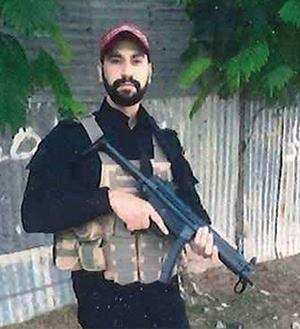
Additional calls coordinated with other terrorists in arranging weaponry for their own attack, and after they crossed into Israel, he instructed them to turn off their cell phones and not mention Hamas’ military wing, Al-Qassam, in case Israel was monitoring their communications.
While the complaint describes the murders of several Israelis in Kfar Aza, there are no specifics of any atrocities that Al-Muhtadi may have done. Supervisory Special Agent Alexandria Thoman O’Donnell said the evidence in the complaint was limited, solely to establish probable cause, and does not include every bit of evidence they have about him.
“October 7 is a day that lives in infamy for so many, Gentile and Jew alike, because of the terrorist attack on Israel that began a wave of antisemitic violence,” said U.S. Attorney Zachary A. Keller for the Western District of Louisiana. “Let this arrest serve as a reminder both that those who perpetrate acts of terrorism cannot evade justice by hiding in our


From the moment they came into the world, we do our best, trying to get it right. So what happens when something goes wrong?
That’s when we have to get it right.
The Center for Cancer and Blood Disorders at Manning Family Children’s has the biggest cancer fighting team in the Gulf South and the most advanced therapies that can be found anywhere - all right here, in our own backyard. So they can get right back to being kids again. manningchildrens.org/cancer






communities and that state, local, and federal law enforcement… are working tirelessly to bring these people to justice.”
Joint Task Force October 7 (JTF 10-7) and the FBI New Orleans Field Office are investigating the case, with valuable assistance from Israeli authorities, including the State Attorney’s Office of Israel, the Israeli Security Agency, Lahav 433 and the Intelligence and Investigation Department of the Israel National Police, the Israel Defense Forces, and the Israeli National Bureau for Counter Terror Financing, as well as the FBI Law Enforcement Attache Office in Israel. The Louisiana State Police, U.S. Customs and Border Protection, Lafayette Police Department and the Lafayette Parish Sheriff’s Office also provided significant assistance, according to the Department of Justice.
JTF-10-7 was established in February by Bondi, and the group uncovered Al-Muhtadi’s presence in the country.
U.S. Senator Bill Cassidy of Louisiana thanked law enforcement, saying “anyone involved in the October 7th attacks committed a crime against humanity and deserves to be behind bars.”
Danny Danon, the Israeli ambassador to the United Nations, told JNS that “this individual, who has blood on his hands, lied on his visa application to enter the United States.”
“I thank the U.S. authorities for apprehending this terrorist and making the United States a safer place,” he said.

“This case illustrates the global reach of terrorist networks and the risks their supporters pose, to include within the United States,” said Michael Masters, national director and CEO of Secure Community Network, the official safety and security organization for the Jewish community in North America. “More than two years after the 07 October attacks, this arrest is a reminder that some of the terrorists responsible for the barbarity on that day have continued to walk amongst us… and so too has their hate. Thanks to the great work of law enforcement, notably the FBI, and DOJ, one fewer of those terrorists is walking free today.”
On Oct. 22, al-Muhtadi pleaded not guilty in federal court in Louisiana, on charges that he provided material support to a terrorist organization and lied on his visa application to the United States.
Meanwhile, Louisiana lawmakers are looking for answers as to how Al-Muhtadi was let into the U.S., while a statement attributed to his family claims he is innocent and the victim of a smear campaign.
Al-Muhtadi’s attorney, Aaron Adams, issued a statement saying that “no evidence has yet been presented in a court of law supporting the government’s allegations. We look forward to addressing those allegations in court,” and criticized U.S. Attorney General Pam Bondi for calling his client a “monster” as he is still presumed innocent by law.
Al-Muhtadi faces up to 10 years for falsifying his application, and life in prison on the terrorism support charge. He could also face deportation to Israel. He is being detained pending trial, reportedly at the St. Martinville Parish Correctional Center.
A Facebook post attributed to the al-Muhtadi family stated that their son is being exposed by parties hostile to the Palestinian people, “trying to make up false allegations against our son Mahmoud in order to deport him.”
They claim he had “no political or party activities prior to his exit from the Gaza Strip” and that he legally entered the U.S. to meet up with family members who are American citizens. They call on those “who support our oppressed people to stand in line with the American public opinion, which stands up in defense of our son Mahmoud, rejecting racial discrimination, ethnic hatred and unjust bias against our people.”
On Oct. 20, Louisiana Sens. Bill Cassidy and John Kennedy, along with House Speaker Mike Johnson, House Majority Leader Steve Scalise, and Reps. Clay Higgins and Julia Letlow, sent a letter to Homeland Security Secretary Kristi Noem to request a briefing on how al-Muhtadi wound up in Lafayette “after entering the United States in 2024 during the Biden Ad-


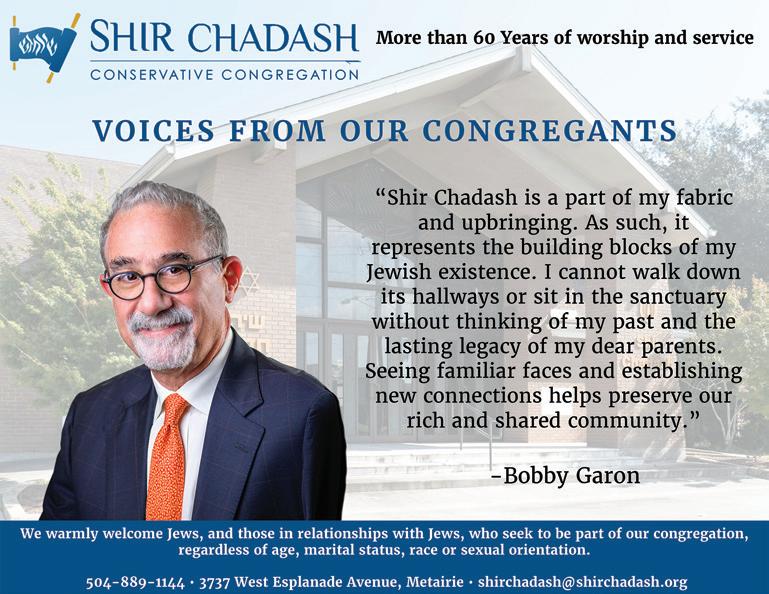


ministration’s dangerous open borders policy.”
They also asked “to be informed about any additional terrorist threats in our state due to President Biden’s dangerous and deadly immigration policies.”
“We appreciate your leadership at the Department and your continued commitment to keeping our communities and our nation safe. We look forward to a briefing from your team to help us understand the circumstances surrounding this individual’s entry and residence in Louisiana,” they concluded.
“It is disgusting that Democrats’ failed open border policies allowed this to happen, putting our national security and the lives of Louisiana families at great risk,” Scalise said in a statement. “I’m grateful President Trump and the FBI are taking swift action to keep Americans safe from this terrorist.”
Sen. Tom Cotton of Arkansas asked the Department of Homeland Security to conduct an immediate security review of visas granted by the Biden administration. “I urge DHS to conduct an audit of all visas issued through highrisk countries since 2021, prioritizing potential affiliations with Hamas or other designated terrorist groups,” he wrote.
Given al-Muhtadi’s social media activity, Cotton also said there needs to be “enhanced social media monitoring for visa applicants from high-risk regions.”
Tickets are now available for Latkes with a Twist, the Jewish Children’s Regional Service event that was declared one of the top 10 Chanukah parties in the country by the Washington Post.
The children’s social service agency is holding events in two cities, with live music, an open bar with specialty drinks and a latke bar with toppings.


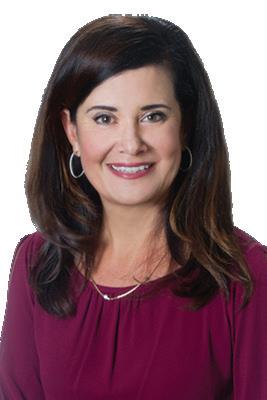

The 11th original celebration will be in New Orleans on Dec. 7, at Press Street Station at the New Orleans Center for Creative Arts. Chef Susan Spicer and Rosedale will be featured. There is a patron’s pre-party at 6 p.m., and the main event at 6:30 p.m.
The third annual event in Houston is Dec. 4 at Beth Israel, at 6 p.m. It features Kenny and Ziggy’s New York Delicatessen.
Tickets at each event are $54, with a $36 ticket for those ages 36 and under. In New Orleans, the patron level is $150, there is no patron level in Houston. Additional donations are encouraged in both communities.
Proceeds benefit JCRS, which provides needbased summer camp scholarships and college assistance, and special needs assistance in a seven-state region.
Alarmed by the dangerous rhetoric being spouted by New York mayoral candidate Zohran Mamdani, close to 1100 rabbis from across the United States have signed a new open letter, “A Rabbinic Call to Action: Defending the Jewish Future,” organized by The Jewish Majority, expressing alarm at Mamdani’s rhetoric and urging political leaders to affirm Israel’s right to exist and reject rising anti-Zionist language that threatens Jewish communities.
“As rabbis from across the United States committed to the security and prosperity of the Jewish people, we are writing in our personal capacities to declare that we cannot remain silent in the face of rising anti-Zionism and its political normalization throughout our nation,” wrote the rabbis, specifically calling out Mamdani’s refusal to condemn violent slogans, deny Israel’s legitimacy, and accuse the Jewish state of genocide. “We will not accept a culture that treats Jewish self-determination as a negotiable ideal or Jewish inclusion as something to be ‘granted.’ The safety and dignity of Jews in every city depend on rejecting that false choice.”
Signatories include the leaders of some of the largest synagogues in New York City, including, Rabbi Joshua Davidson, senior rabbi at Temple Emanu-El; Rabbi David Gelfand, senior rabbi at Temple Israel of the City of New York; Rabbi Chaim Steinmetz, senior rabbi at Kehilath Jeshurun; Rabbi David Ingber, founder of Romemu and senior director of Jewish Life and the Bronfman Center at 92NY; and Rabbi Ammiel Hirsch, president of the New York Board of Rabbis and Senior rabbi of Stephen Wise Free Synagogue. The first 250 signatures on the list come from New York.
Other nationally-recognized leaders include Rabbis David Wolpe, Peter Berg, Denise Eger, Elliot Dorff, Sally Priesand, Yoshi Zweiback, Nicole Guzik and Elaine Zecher.
Rabbis in the Deep South on the list include Adam Wright and Steven Henkin of Birmingham, Stephen Listfield of Huntsville, David Gerber and Robert Loewy of Metairie, Cantor Rebecca Garfein of New Orleans, Joel Fleekop of Pensacola, and Micah Greenstein of Memphis. Also signing were Rabbis Philip Rice, Saul Strosberg, Shana Goldstein Mackler, Michael Shulman and Joshua Kullock, and Cantor Tracy Fishbein of Nashville.
Also of interest locally are Hillel Norry, Brian Glusman, Natan Trief and Samantha Trief of Atlanta, Raina Siroty of Knoxville, Michelle Goldsmith of Margate, Fla., Dana Kaplan of








Sun City, Ariz., Eric Berk of Hingham, Mass., Scott Hausman-Weiss of Houston and David Ostrich of State College, Pa.
As of Oct. 24, there were 1062 rabbis and cantors listed.
The letter calls out the growing normalization of language that demonizes Israel and undermines Jewish self-determination, quoting New York Board of Rabbis President Rabbi Ammiel Hirsch as saying that such rhetoric is used to “Delegitimize the Jewish community and encourage and exacerbate hostility toward Judaism and Jews.”
The rabbis emphasize that for the vast majority of Jews, Zionism is as integral to Jewish identity as religious observance. “When public figures refuse to condemn violent slogans or question Israel’s legitimacy, they not only distort the truth — they embolden antisemitism,”
the letter states. Quoting Rabbi Elliot Cosgrove of New York’s Park Avenue Synagogue’s recent anti-Mamdani sermon, the signatories reaffirm that “Zionism, Israel, and Jewish self-determination are not political preferences but inseparable strands of Jewish identity. To accept me as a Jew but to ask me to check my concern for the people and state of Israel at the door is a nonsensical proposition and an offensive one, no different than asking me to reject God, Torah, mitzvot, or any other pillar of my faith.”
The rabbis urge Americans of all faiths and political affiliations to stand with the Jewish community by supporting candidates who reject antisemitic and anti-Zionist rhetoric, and who affirm Israel’s right to exist in peace and security. They also urge interfaith leaders to defend the principles of equality, dignity, and peace that underpin both Judaism and democracy.
for your favorite dancer at Applause
1629 Oxmoor Road • Homewood, AL (205) 871-7837 • applausedancewear.net Dancewear, Gymnastics and Fitness Family Owned and Operated since 1981
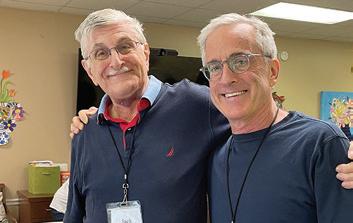
To learn about volunteering at CARES, email lise@cjfsbham.org or call 205.879.3438
The Alabama Holocaust Education Center in Birmingham is taking part in a series of Zoom webinars, “What History Teaches: The Rise of Nazism.” Each session deals with an aspect of history exploring how democracy eroded and extremism took hold in 1930s Germany, and lessons that can be gleaned for today.
Other participating Holocaust museums and education centers include Los Angeles, Montreal, Illinois, Seattle and Buffalo.
The next program, “Between Terror and Resilience — Jewish Life in Nazi Germany” on Nov. 13 at 2 p.m., details how the Gestapo created a life of terror for German Jews, with laws aimed at stripping them of their dignity. Shut out of much of public life, the Jewish community carved out their own spaces and support
networks.
Jordanna Gessler, chief impact officer at Holocaust Museum LA, and the granddaughter of Holocaust survivors, will lead the presentation. The Dec. 9 program, led by the Illinois Holocaust Museum and Education Center, will be “Isolationism, Immigration and the World Watching,” at noon. Daniel Greene, adjunct professor of history at Northwestern University and an expert on American responses to the Holocaust, will examine the United States’ reaction to Hitler’s rise to power and the persecution of Jews, focusing specifically on restrictive immigration policy, isolationist sentiment, and the consequences of American inaction. All sessions are free. Registration information is at ahecinfo.org.
>> Editor continued from page 6
problem declaring that antisemitism is dead, and calling out the idiocy of faith-based hate.
Imagine going back to 1960 and showing this column around — in the Jewish community, among civil rights activists, to the small group of white moderate clergy — and to the rabid segregationists. Would any of them believe that this would be the attitude 65 years later?
done, and though there is still misunderstanding of many of the Jewish community’s concerns, especially in the church-state arena, it shows that there is interest in continuing to move forward together, to work together, to celebrate all Alabamians (and, we should hope, similar efforts in other states around the region).

To learn if CARES is right for your loved one, email pam@cjfsbham.org or call 205.960.3411 Collat Jewish Family Services www.cjfsbham.org 205.879.3438
In 1960, a piece like that would likely have resulted in death threats, perhaps a lit cross in the yard, and possibly having to find a different state to live in.
Sure, reports of the demise of antisemitism in Alabama are quite premature. And maybe it is presumptuous for someone outside the Jewish community to make such a diagnosis.
Nevertheless, it is still an important statement and an important indicator of where our society is today, and messages like that should be encouraged and embraced.
Though there is still a lot of work to be
It shows that we can move closer to the day when we can truly walk the walk our country’s founders envisioned — acknowledging that we are all created equal and endowed by our Creator with the same inalienable rights.
Sellers wrote, “Never again will our state be divided on the basis of race or faith.”
Ken yehi ratzon — may it be Thy will.

Lawrence Brook, Publisher/Editor
continued from page 11
Federation of Greater New Orleans, will get together at Five O Fore on Nov. 16 from noon to 3 p.m.
The next Southern Jewish Voices program at Birmingham’s Levite Jewish Community Center will feature Florina Newcomb, CEO of the Birmingham Jewish Federation. The series of historical interviews is done before a live audience and lunch is provided. The program will be on Nov. 12 at noon, registration is available on the LJCC website.
JPNOLA will have a screening of “Disclosure,” Nov. 18 at 6:30 p.m., place to be announced. The documentary features leading trans creatives and thinkers, sharing perspectives about Hollywood’s effect on the trans community.
The next Honor Our Parents Shabbat service and lunch at Birmingham’s Levite Jewish Community Center will be on Nov. 21 at 11 a.m., and December’s will be on Dec. 5.
On Nov. 10, Nick Weldon will speak in the latest installment of the Morris Bart Sr. Lecture Series at the Uptown Jewish Community Center. He edited a book based on the recent Historic New Orleans Collection’s groundbreaking exhibition, “Captive State: Louisiana and the Making of Mass Incarceration.” Captive State presented a chronological narrative explaining how, over the course of more than 300 years, Louisiana has come to be recognized as the incarceration capital of the world. Weldon is an editor at HNOC, whose work includes the award-winning graphic history “Monumental” and the forthcoming graphic history “Timber Rattlers.” The noon program includes lunch. Reservations are free for members, $10 for non-members.
The Museum of the Southern Jewish Experience in New Orleans is hosting a walking tour of Hebrew Rest Cemeteries Nos. 1, 2 and 3, Nov. 23 at 10 a.m. The tour will proceed chronologically through the properties that are the final resting place of thousands of Jewish New Orleanians. The cemeteries have been jointly owned by Touro Synagogue and Temple Sinai since 1872. The tour is free and registration is available on the museum’s website.
The Piatigorsky Foundation returns to the Uptown Jewish Community Center on Nov. 13 at noon for a classical music concert. Cellist and Piatigorsky Foundation founder Evan Drachman will be accompanied by pianist Richard Dowling. A lunch will be served. Reservations are $5 for members, $7 for non-members.
We have more stories than pages!
New musical “Rey of Light” at Southern Miss honors legacy of Curious George creators
Texas man arrested for alleged death threats against Jews in conservative media in Florida
House Speaker Johnson of Louisiana joins push for Trump to get Nobel Peace Prize
“Turn it Up!” Ambassadors Huckabee, Friedman partner for rendition of “Sweet Home Yerushalayim” in Jerusalem concert
Mob versus justice: Lessons from Leo Frank
Virginia film festival rebuffs calls to boycott Israel, and ticket sales go up
AIPAC mocks Rep. Gaetz’s criticism of its “so weird” events
FBI cuts ties with ADL, Southern Poverty Law Center




Polina Schlafer Wheeler, REALTOR
“Putting You First since 2009”
Crye-Leike - Oxford 1310 University Ave. Oxford MS 38655
Direct 662.401.4632
Office 662.234.5344
polinawrealtor@gmail.com https://oxford.crye-leike.com/
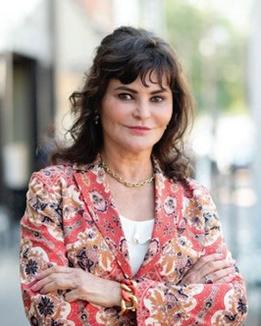




Documentary explores the long-planned “sudden” explosion of antisemitism after October 7
The Jewish National Fund is partnering with groups in Huntsville for two screenings of “October 8: The Fight for the Soul of America.”
The film explains the origins of the explosion of on-campus antisemitism that began almost instantly after Hamas’ invasion of Israel on October 7, 2023. The seeds of this activism had been planted for years and were waiting for a trigger. Not only did the world not react with shock and horror to the massacre of 1,200 in Israel, in a lot of cases there was celebration and calls for more, as well as justification for the mass murder.
The film details how Hamas and its allies created networks to permeate U.S. institutions, working with disinformation campaigns by Iran, China and Russia, to sow division in America. It also discusses how sheer numbers overwhelm social media with anti-Israel narratives.
It describes the ideological underpinning that enables activists to insist that Israel has no right of self defense, that terrorists are freedom fighters to be emulated, and that it is noble to take to the streets and call for the elimination of the Jewish state.
“October 8” includes Debra Messing, Congressman Ritchie Torres, Bari Weiss, Noa Tishby, Dan Senor and “Son of Hamas” Mosab Hassan Yousef.
Huntsville’s Jewish institutions — the Jewish Federation of Huntsville and North Alabama, Temple B’nai Sholom, Etz Chayim and Chabad of Huntsville — are joining JNF for a Nov. 16 community screening. After the film, Zoe Mail will speak. She is deputy Southeast regional director of the Israel on Campus Coalition.
A 2024 graduate of Tulane University, Mail was president of both Tulane’s Chabad and AIPAC chapters. On October 7, while serving as Chabad president, she played a key role in coordinating the campus’s response and mobilizing pro-Israel efforts.
There is also a community-wide screening on Nov. 15 in the Madison area. It is being sponsored by the Federation, Imagine Ministries and the Alabama-Israel Task Force.
Reservations for Nov. 15 are $5, registration opens at 6:30 p.m., followed by the film at 7. The Nov. 16 event is free, registration begins at 5:30 p.m. with the film at 6:30 p.m.
The location for each screening will be given upon registration.
The film was screened in New Orleans in April, coordinated by the Jewish Federation of Greater New Orleans and co-sponsored by numerous community organizations. The event was sold out, and many who were there stated that “everyone needs to see this.”In July, the film was screened at Birmingham’s Levite Jewish Community Center, and at B’nai Israel in Pensacola.
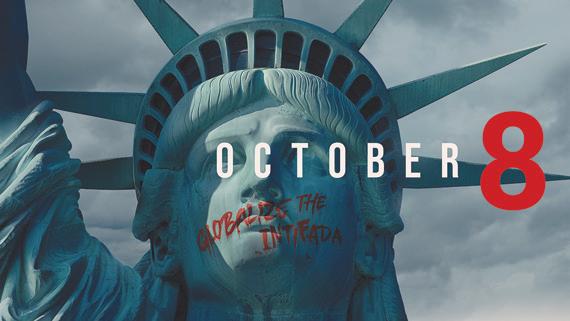
The University of Alabama and Ben-Gurion University of the Negev signed a Memorandum of Understanding over the summer, paving the way for academic cooperation between the two institutions.
The ceremony took place during a week-long visit by Professor Michal Bar-Asher Siegal, Vice President for Global Engagement at Ben-Gurion University.
She also visited the Universities of North Carolina and Georgia, Georgia Tech and Emory. Siegal also joined a panel at Tuskegee Institute, “Black-Jewish-Israel Relations and Best Practices and Future Joint Initiatives Session,” hosted by Israeli Consul General Anat Sultan-Dadon and the United Negro College Fund, as part of an effort to further collaboration between Ben-Gurion and HBCUs.
Siegal said she was visiting the area “to present Ben-Gurion University to the Southern U.S. and promote collaborations.” The university has about 20,000 students across three campuses, “a
They are “very strong — unfortunately — in the fields of emergency medicine,” and also in solar energy, cyber security and entrepreneurship. She said one-third of Israeli engineers annually come from Ben-Gurion.
Siegal said students can be part of the entrepreneurship center from day one, regardless of field. It’s not done for credit, “we don’t believe in teaching entrepreneurship, we believe in making entrepreneurs.”
At Alabama, “we were very, very happy and were received extremely well.” The agreement between the universities established a joint seed finding initiative to foster global research collaboration between Alabama and Israeli researchers.
The initiative is a partnership between UA’s Office of Research and Economic Development and BGU’s Office of Research and Development and Global Engagement. The program provides up to $30,000 per project, half from each institution, and multiple grants are available per year, depending on funds.
Ashley Lewis and the Fred Smith Group employ an aggressive marketing plan unlike any other Realtors in the area. We believe in marketing beyond the sign, and go the extra mile to help our clients. Our goal is to sell your home or property for the most amount of money in the least amount of time.
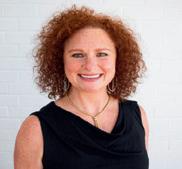

a mid-September deadline, and decisions were planned to be announced by the end of October. While at Alabama, they met with researchers in water, psychology and transportation. “There were a lot of areas of collaboration where we could benefit,” she said. A water expert from BGU is already scheduled to visit Alabama in November, so “it’s already taking a fast route.”
It was also the first signing of any agreement by the university’s new president, Peter Mohler.
In May, there was a webinar to introduce the collaboration, which was “extremely well attended.”
Siegal said the HBCU panel was “very moving,” and “we are already beginning to meet” to see how it can lead to collaborative efforts.
“As far as we are concerned, the trip to the South was amazing,” Siegal said. “We thing there is a lot of potential.”
The team also enjoyed the fried green tomatoes during their visit.
Next, they plan to visit universities in Florida




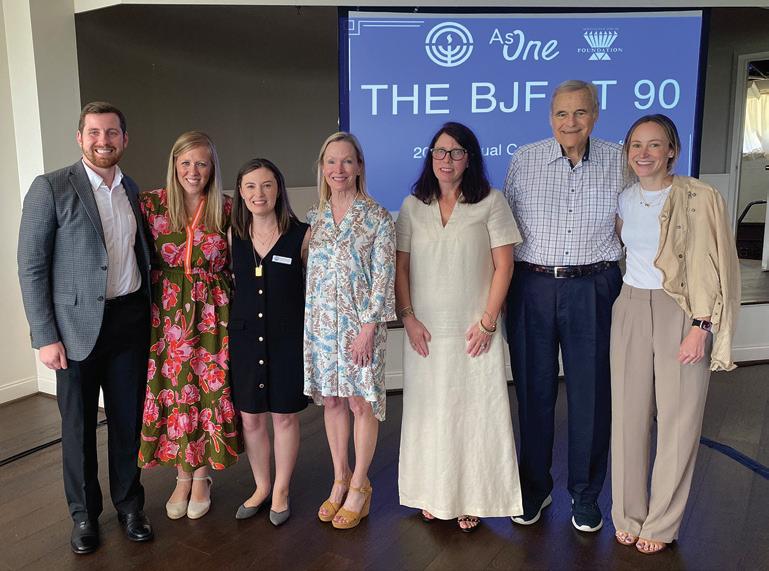
A time to celebrate the past also became a window to the future, as the Birmingham Jewish Federation held a BJF at 90 kickoff for the 2026 Annual Campaign, celebrating the organization’s 90th anniversary.
At the Aug. 24 event at the Pine Tree Country Club, Florina Newcomb was welcomed as the new Federation and Foundation CEO, in the first event since she assumed the role.
Sheryl Kimerling, Federation president, said the event was “celebrating 90 years of Federation history, leadership and impact,” and recognitions will continue throughout 2026.
She remembered that in 1991, her motherin-law, Paula Kimerling, invited her to a lunch where she was encouraged to become a Lion of Judah. She said her years of giving and Jewish community service “all began with one ask.”
“It is now our responsibility to carry that torch and ensure our next 90 years are even stronger,” she said.
To mark the anniversary, the 20 living past presidents have all signed on as co-chairs of the campaign.
Michael Pizitz spoke about how his father had been the president in 1941, a role he took in 1970. Asked if he had memories of his father’s time as president, he said “I think I was six years old, I was riding a tricycle in the driveway every time he went to a meeting.”
He recalled a few years later that his father came home from a meeting and said “Israel 60, U.S. 40.” “I didn’t know if he had been to a football game or a basketball game, but I was very impressed that Israel beat the U.S. by 20 points, whatever it was.” He later found out the numbers were the percentages of raised funds going to the respective places.
When he was president, he believes it was a
65 to 35 ratio. “The needs in Israel were obviously very great… but since that time the whole situation has reversed itself,” with 15 percent going to Israel and the rest staying home, going to places like the Levite Jewish Community Center, Collat Jewish Family Services, Alabama Holocaust Education Center, N.E. Miles Jewish Day School and the Alabama and Auburn Hillels.
He noted, however, that there is an additional cost — security for all of the local Jewish institutions is now approaching $1 million per year, with some institutions imposing security surcharges on members. “That is a frightening number, and a bad state of affairs in this country that you cannot have a Jewish meeting anywhere without security.”
Last year, he said, the Federation’s Annual Campaign raised $2 million. He said it is important for people to know that 85 percent stays local, and “it is very important for each and every one of us to support the Birmingham Jewish Federation.”
Newcomb was greeted with a very vocal welcome by those in attendance. She started out by praising the community leadership for their accomplishments over the decades. “You have created an environment in which Jewish life has flourished at every level.”
She spoke about how the Jewish community is at a crossroads, with an arduous task ahead and the need for perseverance, not letting frustration, fatigue and emotion “wear us down,” and the anticipated need for maximum contributions to meet the community’s needs. “If we all do our share, if we maintain that kind of perseverance and commitment that binds us here today, then it will go on and on, strengthening and growing from one generation to the next.”
She then stated that the sobering and challenging message was not her words — it was an address by Steve Brickman in 1986, when Israel Bonds was honoring the Federation in that very room. “That night, he and Karl Friedman were the speakers.”
She said that when the “As One” theme was announced for this year, Brickman recalled that speech and a similar theme from that year. “Steve’s speech from 1986 to our Jewish community then can also be applied for our Jewish community now,” so they used a similar approach for this event, by showing the Federation’s history through a display of historical posters, a video of past presidents and legacy donors, “recalling why and how they made the Federation an integral part of their lives,” and from those participating in community life today.
Looking at the future, “I see a flourishing Birmingham Jewish community that is secure, and protected from threats to our being and way of life, our buildings and our programming.”
While we may wish for a time free of antisemitism, she said, we know Jewish history. Community security is one of the top issues, and the Federation has invested in the regional security advisor, Damon Summers. Spending on security is a “non-negotiable expense,” she said.
For the long term, the Jewish Community Relations Committee will “continue to build bridges” and lay the groundwork for a community with less antisemitism.
She also envisions expanded programming, generations of leaders who have “come through the pipeline” of Young Leadership and You Belong in Birmingham.
That includes a strong Israel, and stronger person-to-person programs between Birmingham and Israel.
“Most important, I see Jewish joy. I see it throughout our agencies and synagogues,” she said. It is important for everyone to carry that, she said, and “this work can not be done without a united Jewish community.”
She added, “we should challenge each other, question assumptions and grow even when it is hard, but at the end of the day, there are those things that unite us, that remind us we are stronger together.”
The campaign will continue through December 31. She reminded that a few years ago, the Federation shifted to raising funds in the year before allocations are made, as non-profit best practices and so agencies can budget with solid numbers. “That is why we are asking for your 2026 gift in 2025.”
A video had interviews with many longtime
community members, and how they began their Federation journeys, with who had influenced them to be active.
For the event speakers, though, there was an emphasis in younger members of the community, giving their Federation stories. Emily Feinstein, co-chair of women’s philanthropy, spoke about being part of the Momentum group three years ago, with 11 other mothers in the community and four from sister city Rosh Ha’Ayin.
“Women’s philanthropy connects us to each other, to the women who came before us and to those who will follow in our footsteps,” she said. The women’s group also does the annual Great Chanukah Read, going into 51 third grade classrooms around the city to read a book about Chanukah, reaching over 1,000 students. “That is impact, and that is community.”
Carlie Stein Somerville, a third-generation Birminghamian, spoke of the many things she enjoyed growing up, from the Day School to JCC summer camp and volunteering with Jewish Family Services, all of which existed because of the efforts of those who came before.
Her first personal connection to Federation was upon returning to the city in 2009 after college, and how You Belong in Birmingham “welcomed me and my husband with open arms, and we were quickly able to connect with other



young Jewish adults looking to build Jewish community.”
Mathew Banker first came to Birmingham as an undergraduate at the University of Alabama at Birmingham, from the Dothan Jewish community, so to him Birmingham was a large community.
He spoke of becoming involved with the local BBYO chapters, and “I’ve seen a lot of great teens come through the program and move on and do great things.” He said he felt “a gap” after religious school, “so I am very passionate about helping these young Jewish men and women continue to grow their identity, and the Federation has done a great job in supporting this program.”
Julie Pizitz grew up in Birmingham, but after getting married, they lived in Atlanta. “After October 7, something shifted for me,” as she realized how important it was to live as Jewishly as possible. Family was a consideration in moving back to Birmingham, but so was the opportunity to be part of “Birmingham’s smaller but still very mighty Jewish community.”
She is in charge of PJ Library programming, and “it is one of the ways we ensure young families are rooted and supported.”
Nine decades
The first coordinated effort for the entire Jewish community was the Federation of Jewish Charities of Birmingham, with representatives from several charitable organizations, who first met in 1915.
The United Jewish Fund was created in 1936, bringing several organizations under its umbrella for a coordinated effort that raised $24,000 in that first year. Dora Roth was the first leader. It wasn’t until 1943 that the organization held an annual meeting, and that was also the year that the Alabama Legislature passed the historic resolution calling for the establishment of a Jewish state in its ancient homeland, the first state to do so.
In 1947, the community embarked on a drive for European Jews, doing its part to assist 1.5 million Holocaust survivors. Former U.S. Treasury Secretary Henry Morgenthau launched the drive, which was chaired by Isadore Pizitz and Mollie Gotlieb. The campaign raised $425,000.
In 1951, representatives from the Fund met with Israeli Prime Minister David Ben-Gurion when he came to the region to tour Tennessee Valley Authority projects, including in Muscle Shoals.
In 1962 the community responded to the growing civil rights turmoil in the city by establishing the Jewish Community Council, to be a voice for the Jewish community in the broader community. In 1976, it became a committee of the Birmingham Jewish Federation, responding to antisemitism and also engaging in proactive educational and outreach programs.
The Fund continued to grow in scope, and in 1970 the name was changed to the Birmingham Jewish Federation, with Michael Pizitz serving as the first president of the newly-named entity.
In 1973, the Federation established what became the Birmingham Jewish Day School, now the N.E. Miles Jewish Day School. It originally met in a couple of the classrooms in the educational wing of the Jewish Community Center, then in January 1976 dedicated its own building at the western end of the JCC. The Federation office, led by Seymour Marcus, was also in the Day School building.
The Birmingham Jewish Foundation was established in 1979 to administer permanent gifts. Marcus became the first director, until Sally Friedman took over in 1984 and continued in the role until 2023..
In 1982, Birmingham News reporter Richard Friedman became only the third executive director of the Fund/Federation, a position he would hold until retiring in 2020.

Early in the 1980s, through a relationship started by the Kimerling family, Birmingham was paired with Rosh Ha’Ayin under Partnership Renewal, an Israeli effort to revitalize neglected “development towns” through twinning with Jewish communities around the world. The Kimerling Center in the middle of Rosh Ha’Ayin was the first tangible result of the relationship with the town of 14,000 Yemenite immigrants.
In 1983, the city’s signature group, the Rosh Ha’Ayin Mandolin Girls Orchestra, performed to a packed house at Temple Beth-El as the community met a $1.5 million goal to help the town. In appreciation, the mayor presented the Birmingham Jewish community with a Yemenite Torah, which is housed at the Day School. The orchestra returned for a visit in 1986.
The 1980s also saw the Federation’s first Israel Bonds drive, and the establishment of the Joanie Plous Bayer Young Leadership Award.
A committee of the Federation was spun off in 1989, becoming Jewish Family Services of Birmingham. Since then, what is now Collat Jewish Family Services has been an independent agency serving the Jewish and general communities.
In December 1987, Russian Premier Mikhail Gorbachev visited Washington for a summit
with President Ronald Reagan, and the Jewish community mobilized in unprecedented fashion, with a demonstration of 200,000 at Freedom Sunday to urge the Soviet Union to let Soviet Jews emigrate. Birmingham sent a delegation of 75, and the matching red hoodies saying “Birmingham, Alabama“ and “Free Soviet Jewry” were featured in the Washington Post’s coverage.
As the Iron Curtain fell, the community raised $2.4 million for Operation Exodus, as hundreds of thousands of Jews left the former Soviet states for Israel and the U.S., with numerous families resettling in Birmingham.
December 1991 saw the Genesis Mission, perhaps the largest Birmingham Jewish community trip to Israel, with all three congregational rabbis taking part. The next year, 62 attended the Chazak young leadership mega-mission.
After a community study in 1991, spurred by the need to renovate and expand the Jewish Community Center, a $10 million capital campaign began, which also led to new Federation offices and the current Day School building.
In 2005, the Teen Tzedakah philanthropy program was established, and You Belong in Birmingham was created in 2006.
In 2022, the Federation formed a partner-

ship with Momentum, a year-long program for women, that includes an Israel trip. The Young Leadership program was also brought back that year.
The attacks of October 7, 2023, spurred a lot of activity, from community vigils to participation in a massive rally in Washington, and flyin missions of solidarity. Almost 800 blue and white mailbox bows were sold, raising awareness and over $10,000 toward the community’s emergency campaign.
In August, Newcomb was named CEO, succeeding Danny Cohn, who had led the Federation since 2020 and is now the CEO of the Federation in St. Louis.



program explores institutions on St. Charles Avenue that assisted orphans
As part of the ongoing exhibit at the Museum of the Southern Jewish Experience, “Most Fortunate Unfortunates: The Jewish Orphans’ Home of New Orleans,” the museum will host a program about the Home and other institutions that “ain’t dere no more” but played an important role in New Orleans.
“Remarkable Charitable Neighbors Along St. Charles Avenue: 1880s through 1940s” will be on Nov. 13 at 6 p.m., as a free in person event and virtually.
Marlene Trestman, author of “Most Fortunate Unfortunates,” will be joined by Jari Honora to explore several institutions that were along a stretch of St. Charles Avenue, including the Home for Destitute Orphan Boys, the Jewish Orphans’ Home, and, to offer rigorous college and secondary education to Black youth, New Orleans University, which later became the Gilbert Academy.
They will discuss the shared and distinct attributes of these prominently positioned and purpose-built institutions, including religious affiliation (Protestant, Methodist, and Jewish), mission, leadership, notable alumni, and the successor institutions that continue to thrive to the present.
Honora is family historian at the Williams Research Center of the Historic New Orleans Collection, is a trustee of the Board for Certification of Genealogists and a board member of the Louisiana Historical Society and Genealogical Research Society of New Orleans. Most recently, Honora made news for discovering Pope Leo XIV’s Creole roots in New Orleans.
As the events stemming from Oct. 7 continue to unfold, even after the ceasefire agreement, a former Israeli intelligence official will brief the Birmingham community on what is happening, and where things are heading.
Avi Melamed will present “The Map, The Compass, The Moment: The Middle East Two Years After October 7” on Nov. 19 at 6:15 p.m.
A former Senior Advisor on Arab Affairs, Melamed was appointed as a Fellow of Intelligence and Middle East Affairs at the Eisenhower Institute in Washington. There, he developed an undergraduate experiential education course, Inside the Middle East: Intelligence Perspectives, which he then expanded into its own independent institute. ITME provides educational programming in Israel and around the world and serves a wide variety of Jewish and non-Jewish audiences of all ages, backgrounds, and ideologies, stressing a non-partisan approach.
In 2023, ITME released a five-part documentary series, “The Seam Line,” exploring perspectives in Jerusalem about the Israel-Palestinian conflice.
The program is free, registration is required. There will be a question and answer session. Funding is in part provided by the JCC Association of North America and the Birmingham Jewish Federation and Foundation
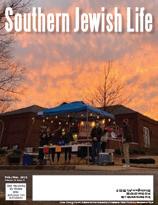
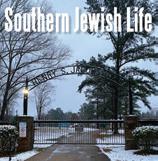
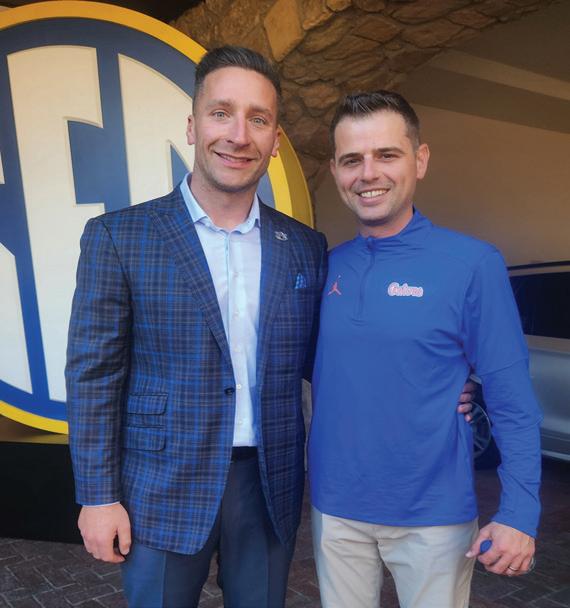
Auburn, Florida coaches won gold for U.S. in World Maccabi Games in Israel, now face off in SEC play
By Lee J. Green
SEC Basketball soared to historic heights last season.
The conference set a college basketball all-time record with getting 14 of its 16 teams into the NCAA Tournament. Two teams led by Jewish coaches — Auburn with Bruce Pearl and Florida with Todd Golden — squared off in the semifinals, with the Gators ultimately winning their third national championship.
“Winning the national championship was one of the greatest moments of my life. I give so much credit to the players, coaches and administration for their dedication,” said Golden at SEC Media Days at the Grand Bohemian Hotel in Birmingham in October. “It was sweet, but we didn’t celebrate for long. We were out on the recruiting trail and building our team to compete for a second national championship this season.”
The SEC media picked the Gators to win the SEC Championship this season and Florida is ranked third nationally in the AP Top 25 preseason poll.
Golden didn’t realize it at the time, but the semifinal game against his Gators would be the last game Pearl would coach. In September, Auburn’s most successful coach of all time retired and turned the reins over to his son, Steven.
Bruce Pearl will serve in an administrative support role for the Tigers while also working on the broadcast teams for TNT’s coverage of college basketball.
“I know that Steven will be a great coach. He and I have learned so much from his dad,” said Golden.
He and Steven Pearl met when both were playing in an AAU tournament in Australia in 2005. Four years later, when Golden was at St. Mary’s University and Pearl was at the University of Tennessee, they played together on the gold-medal-winning 2009 U.S. Maccabi Games team in Israel, coached by Bruce Pearl.
In 2014, Golden came to Auburn to work as a director of basketball operations and then was an assistant coach with Steven Pearl in 2015-16. “It’s really amazing how things have come around,” he said.
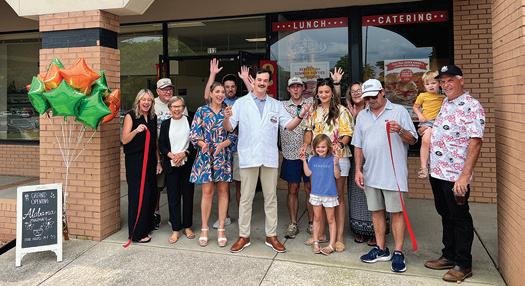




Steven Pearl, 38, has been on Auburn’s coaching staff for 11 years, being elevated to their defensive coordinator in 2023. He has been very involved in recruiting and took great pride in the fact that all of their players on the 2025-26 roster stayed after the coaching change.
“My dad has been coaching since before I was born,” he said. “Basketball, family, Judaism and support of Israel have the most important aspects of my life. Tradition is very important and I plan to continue that tradition on and off the basketball court.”
Pearl was born in Iowa City in 1987 when his dad was an assistant coach for the Iowa Hawkeyes. He started playing basketball in high school when his father was head coach at University of Wisconsin-Milwaukee, then transferred to high school in Knoxville when Bruce Pearl got the job at the University of Tennessee.
He played four years for the Vols and a few years later joined the Auburn staff when his dad, who he calls BP, got the job at Auburn.
Steven said for the past three years, he and his dad had discussed the possibility of BP’s retirement and his desire to keep the head coaching job in the family.
“He has prepared me very well and I know
he’ll be there to give some advice,” he said. “I’m so proud of the legacy he has created.” Steven said his father looks forward to having more time to advocate for Israel and also spend more time with the grandkids.
Steven Pearl’s alma mater Tennessee and the Alabama Crimson Tide were the other two SEC teams in the 2024-25 Elite 8.
Alabama Head Coach Nate Oats, who led the Crimson Tide to their first Final Four appearance in 2023-24, brings back a very experienced backcourt with guards Labaron Philon, Jr. (a first-team all-SEC selection for 2025-26), Aden Holloway (who also played under Bruce Pearl at Auburn), Houston Mallette and Latrell Wrightsell, Jr.
“We were the highest scoring team last year and we’ve got players that have really bought into our system,” said Oats. “I think if we can improve on defense and gel together as a team we can take it over the top.”
Former Alabama great forward Richard Hendrix played against Golden when both were in Israel. Henrdrix played for Maccabi Tel Aviv and Golden was with Maccabi Haifa in the early 2010s.
“Israel was a very special place to play and


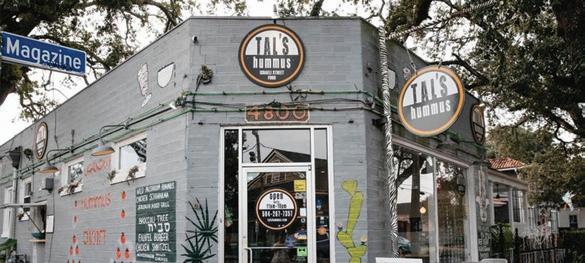



live,” said Hendrix, who now lives in Nashville and broadcasts Alabama games for the SEC Network. “I’d get invited regularly to Shabbat dinners and Seders. Everyone is so warm, open and hospitable. Those were some of the best experiences of my life.”
Here is the predicted order of finish for the SEC 2025-26, as voted on by the SEC media
1 – Florida Gators
2 – Kentucky Wildcats
3 – Tennessee Volunteers
4 – Alabama Crimson Tide
5 – Arkansas Razorbacks
6 – Auburn Tigers
7 – Missouri Tigers
8 – Ole Miss Rebels
9 – Texas Longhorns
10 – Mississippi State Bulldogs
11 – Vanderbilt Commodores
12 – Oklahoma Sooners
13 – Texas A&M Aggies
14 – Georgia Bulldogs
15 – LSU Tigers
16 – South Carolina Gamecocks


By Lee J. Green
Seth Greenberg might be best known for his illustrious career as a college basketball coach and broadcaster. But he said Jewishness is really what defines him.
“That sense of identity is so important to me,” said Greenberg, who has worked as a college basketball commentator for ESPN since 2012 and was at SEC Basketball Media Days last month. “I’m very proud of my Jewishness and happy to talk about what it has meant in my life.”
Greenberg grew up in Plainview, N.Y. He had his Bar Mitzvah there and would go on to have much success on the basketball court playing for John F. Kennedy High School. In 1974, he earned a scholarship to Fairleigh Dickinson University in New Jersey and lettered on the team for four years while earning degree in broadcast journalism.
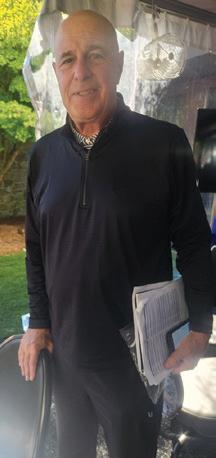
“I think I knew playing professionally wasn’t in my future, but I learned a lot from (FDU Head Coach) Al Lobalbo and considered myself a stu dent of the game, so coaching was very appealing to me,” he said.
Greenberg worked as an assistant coach for several universities from 1978 through 1987. In 1987, he was hired on at Long Beach State and was promoted to head coach in 1990.
He spent six seasons there and seven at the helm for South Florida before getting the Virginia Tech job in 2003. In nine seasons, Greenberg compiled a 170-123 record for the Hokies and won ACC Coach of the Year in his second season in Blacksburg.
Greenberg said that he was surprised to be fired by Virginia Tech in 2012, but he bounced back quickly after getting the opportunity with ESPN. He also volunteered to coach the 2013 U.S. basketball team in the World Maccabiah games in Israel.
“My older brother Brad was coaching for Maccabi Haifa and Hapoel Jerusalem at the time,” he said. Brad Greenberg would go on to coach a few other professional teams in Israel through 2020. “I’ve visited Israel a number of times and we have many friends there who we talk to regularly. It’s a special place to me and our family.”

Seth Greenberg said he takes pride in being a mentor to young coaches and sharing that identity with Jewish coaches in college basketball. He regularly attends meetings of the U.S. Jewish College Basketball Coaches group.
“It’s remarkable that three of the four coaches in last year’s Final Four were Jewish,” he said. They were Auburn’s Bruce Pearl, Florida’s Todd Golden and Duke’s Jon Scheyer.
Greenberg said much has changed in college basketball since he was coaching, especially in the last few years with Name, Image and Likeness.
“It’s more challenging than ever to be a coach because of all this new landscape you need to navigate,” he said. “There are so many ‘business’ aspects coaches need to tend to that I didn’t back in my days. I tell coaches the most important thing you do is to invest in relationships.”
Greenberg said he enjoys broadcasting and having more time to spend with his wife, Karen, kids and grandkids.
When asked about what he attributes to his success off the court, he said, “I lived the college basketball life for more than 50 years,” he said. “I earned a degree in broadcast journalism but I’m not a journalist. I’m just a basketball coach talking about the game I love.”
In the little moments and major milestones of childhood, we are here for our patients and their families – helping, healing, teaching and discovering.
Childrens AL •org
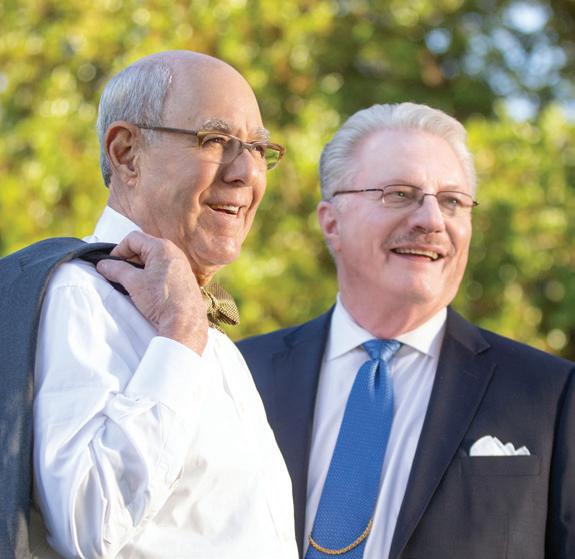
To the Families of New Orleans
Our decision to join the professionals at Lake Lawn Metairie allows us to continue our mission to provide families the highest caliber of care in the most beautiful of surroundings. Lake Lawn Metairie proudly serves all congregations and all local cemeteries. Whether planning in advance or at the time of need, we’re dedicated to serving families with professionalism, compassion and attention to detail that is second to none.
Sincerely,
Stephen Sontheimer & Billy Henry
Special to Southern Jewish Life
As the year draws to a close, many of us take time to review our finances and plan for the future. The Birmingham Jewish Foundation and the Jewish Endowment Foundation of Louisiana are pleased to share charitable giving strategies that can help you support the causes you care about while also offering potential tax benefits.
This summer, Congress passed the “One Big Beautiful Bill Act,” which introduced important changes to the tax code. Some provisions are already in effect, while others will take effect in 2026.
What does this mean for you? For many donors, making gifts before December 31, 2025 may provide greater tax advantages than waiting until the new rules begin.
Below you’ll find a summary of the most important provisions, organized by timing.
Please note: This article is for informational purposes only and should not be considered tax advice. We encourage you to consult with your own tax advisor to determine the best approach for your personal circumstances.
Tax Rates and Deductions
Current tax brackets (10% to 37%) and the higher standard deduction are now permanent.
Standard deduction for 2025: $15,750 (single) or $31,500 (married).
Seniors age 65+ may qualify for an extra $6,000 deduction from 2025 to 2028 if income is below $75,000 (single) or $150,000 (married).
Tip: Even if you don’t itemize, donating appreciated stock or using an IRA rollover can provide meaningful tax savings.
The SALT deduction cap rises to $40,000 for married couples with income below $500,000 for 2025–2029.
Tip: This may make itemizing more attractive for some donors, potentially increasing the value of your charitable deductions.
The 60% cash gift limit is now permanent: great news for substantial givers.
New “giving floor”: For itemizers, only charitable contributions above 0.5% of adjusted gross income will be deductible.
Deduction cap: Itemized deductions (including charitable gifts) will be limited so that taxpayers at the 37% bracket cannot receive more than a 35% tax benefit.
Additional tax deductions for non-itemizers: A special charitable deduction up to $1,000 (single) or $2,000 (married) will be available for direct gifts to public charities like BJF and JEF. (Note: Donor advised fund gifts do not qualify.)
Tip: Large charitable gifts made in 2025 are not subject to the 0.5% AGI floor or the deduction cap. Consider “bunching” multiple years of giving into 2025 to maximize tax benefits before these limits begin.
Donate Appreciated Stock or Assets
Gifts of investments held for more than a year may be deductible at full fair market value, while avoiding capital gains tax.
With markets up, this strategy can be especially valuable.
If you hold assets at a loss, consider selling them to generate a tax loss, then donate the cash proceeds. (Up to $3,000 in capital losses may offset
ordinary income each year.)
Donor Advised Funds
Contributing to a DAF provides an immediate deduction and enables you to recommend grants to charities later.
Funding with appreciated stock adds further tax savings.
If you want a deduction now but prefer to spread your giving out over time, consider opening or adding to a DAF.
Establishing a DAF or adding to an existing DAF in 2025 may result in larger tax deductions and tax savings than making a gift in 2026.
Bunching Charitable Gifts
Combining two or more years of charitable contributions into 2025 can push you above the standard deduction threshold, making itemizing worthwhile.
This strategy works especially well with a DAF, allowing you to secure the deduction this year while distributing grants over several years.
Bunching is even more valuable now, as it helps avoid the 0.5% AGI giving floor and the 35% tax deductible ceiling that begins in 2026.
Qualified Charitable Distributions from IRAs
If you are 70½ or older, you can transfer up to $108,000 in 2025 directly from your IRA to a qualified charity, tax-free.
These gifts count toward your required minimum distribution once you reach age 73.
Rollovers also remove retirement assets from potential estate tax exposure.
Note: QCDs cannot be made to donor advised funds, but may be directed to designated funds (through JEF) or directly to charities, including Federa-

tions, synagogues, and partner agencies. Birmingham Jewish Foundation is not able to accept such gifts.
Annual Exclusion Gifts
In 2025, you may give up to $19,000 per person without gift tax, reducing your taxable estate.
There are clear advantages to making charitable gifts before year-end, particularly with the new limits beginning in 2026. The BJF and JEF staff are here to help you think through your charitable goals and coordinate with your advisors.
Please keep in mind the following deadlines for year-end giving:
Online gifts: by 11:59 p.m. on Tuesday, December 31
Mailed gifts: postmarked no later than December 31
Hand-delivered gifts: by 12:00 p.m. on Tuesday, December 31
DAF grant recommendations: by Friday, December 12
Stock/securities transfers: by Friday, December 12
For more information, please contact:
Samantha Palmer, Birmingham Jewish Foundation — 205-803-1525, samanthap@bjf.org
Bobby Garon, Jewish Endowment Foundation of Louisiana — 504524-4559, bobby@jefno.org
Disclaimer: BJF and JEF do not provide tax advice. Please consult your professional advisor before taking any action.

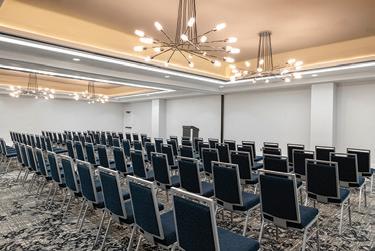


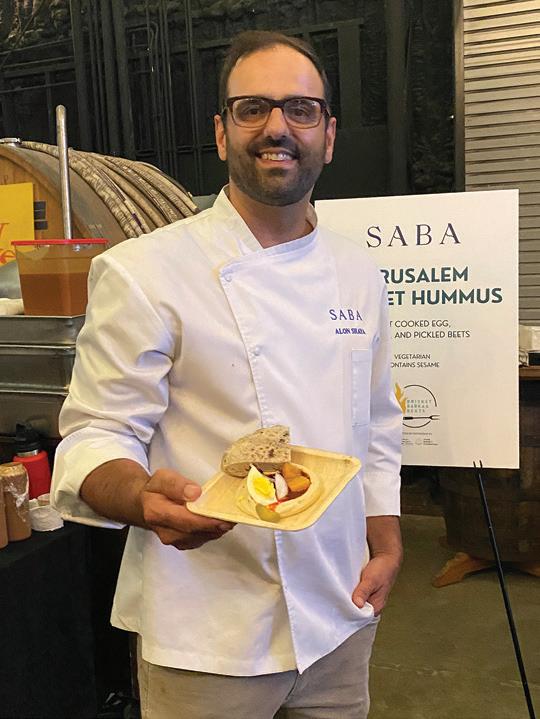
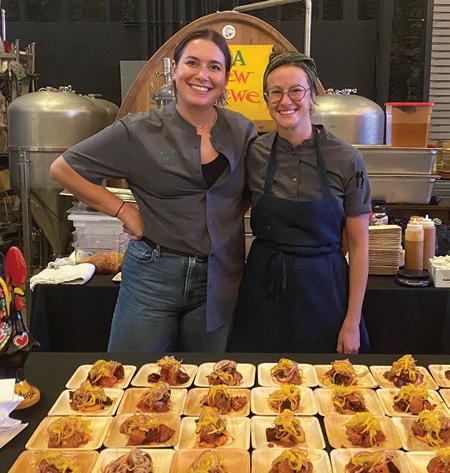
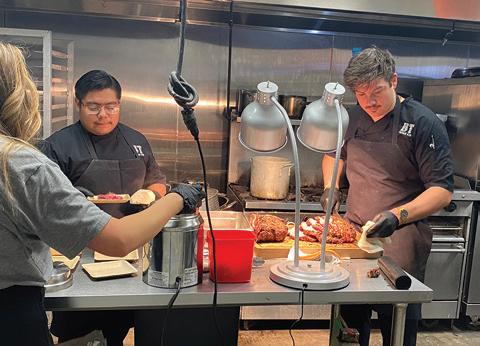
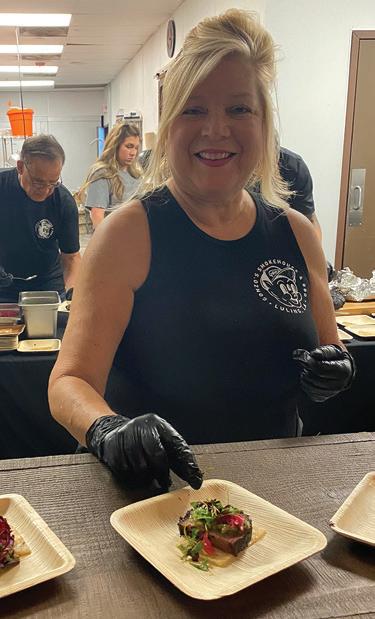
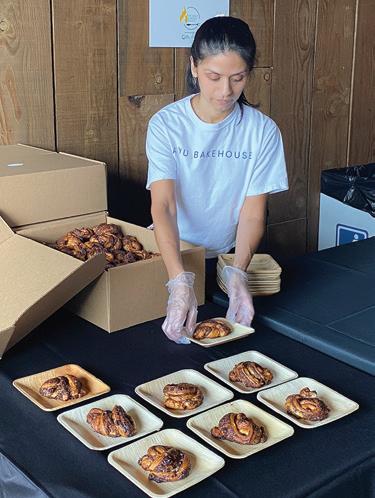
Top row, left to right: Alon Shaya presents Saba’s Jerusalem market hummus with soft cooked egg, harissa and pickled beets. Gonzo’s Smokehouse in Luling served prime grade brisket served on a roti flatbread, topped with salsa verde, pickled red onions and micro greens. Middle row: From 34 Restaurant and Bar, there was a roasted beet escabeche and romesco. Ayu Bakehouse provided chocolate babka. Preparing the dishes from Saba. Bottom row: Bon Ton Prime Rib served prime rib au jus with horseradish. Dvash served slow-braised kosher brisket infused with garlic, and chocolate babka.
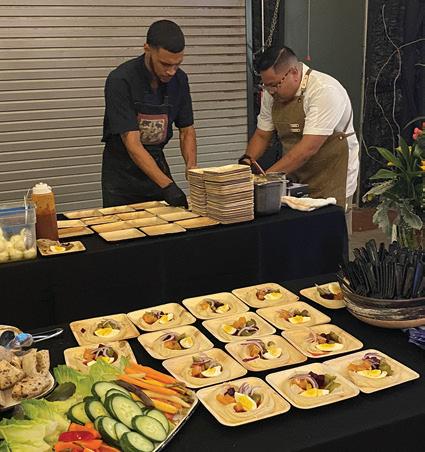

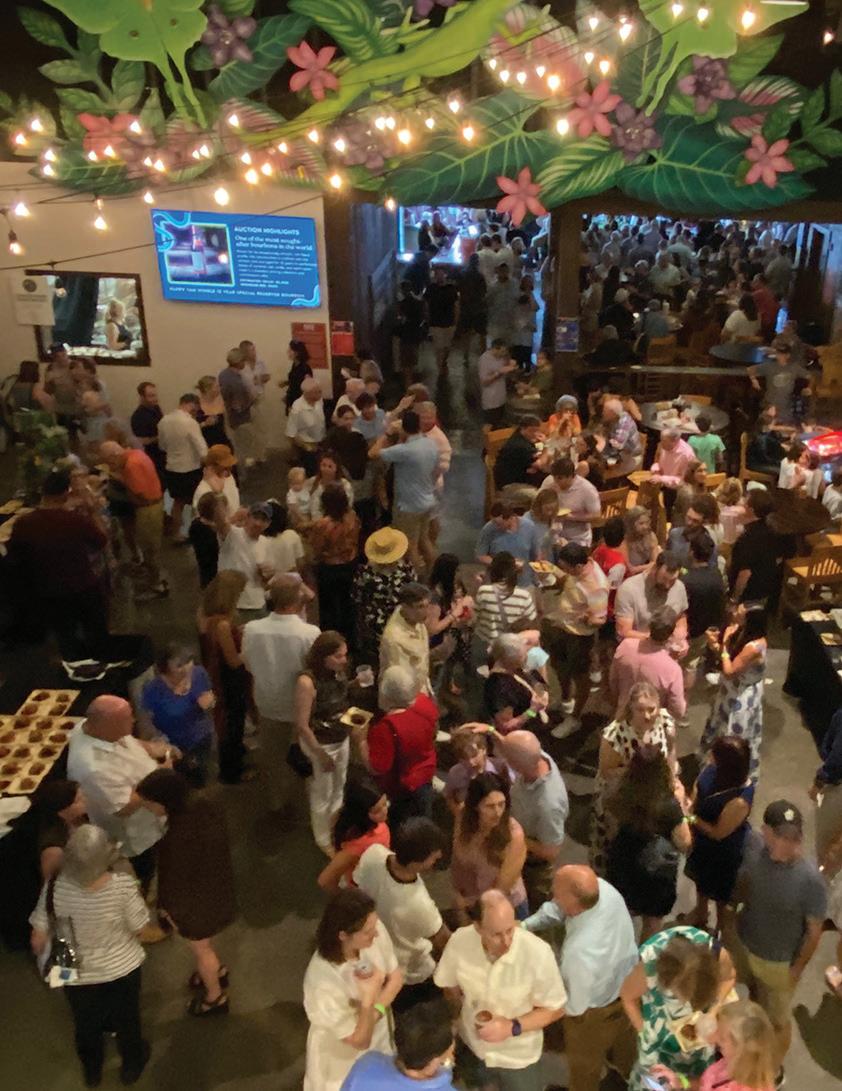
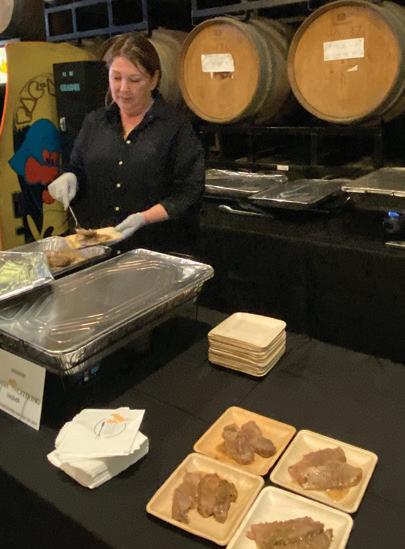

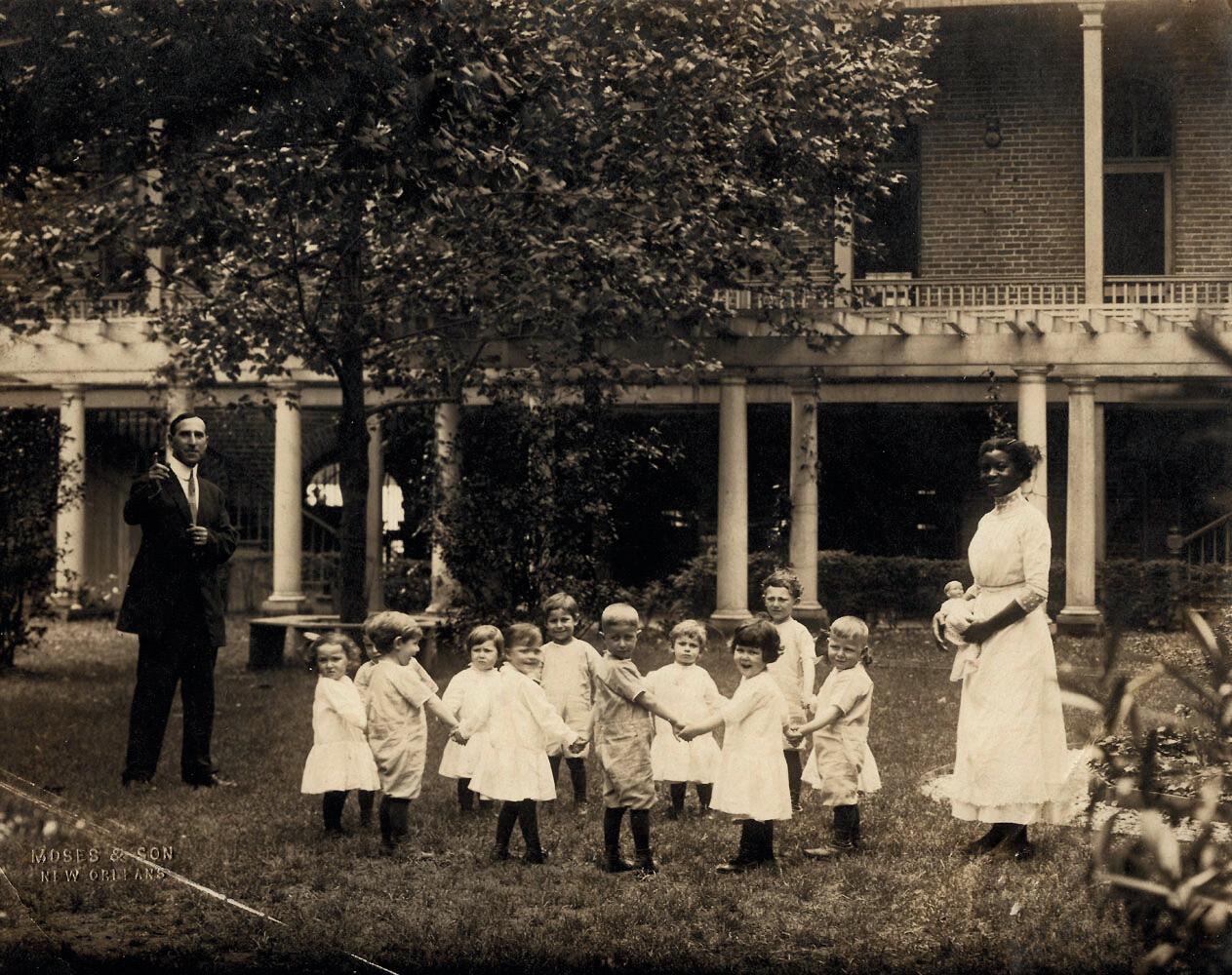

The inaugural Brisket, Babka and Beats, held at Nola Brewing and Pizza Co. on Sept. 14, was sold out, with 400 sampling unique takes on Jewish culinary classics. The benefit for Jewish Community Day School in Metairie and the Shaya Barnett Foundation was chaired by Emily and Alon Shaya, Gabe Feldman and Susan Green.
Shaya thanked those who attended, saying the idea began in 2022 but was not fully formed, then began as Brisket, Bourbon and Blues. “So we’re not that far off.”
Organizers were a bit surprised at the huge response, and cut off reservations at 400. “Next year, we are going to see if the Superdome is available,” Shaya quipped.
After the formal presentation, Shaya looked at the crowd and said it was “remarkable.” He said the chefs who were involved “all certainly brought their A game.”
He added, “The more we can do things like this and bring our community together, the better it helps our city overall.”
As for next year, “we hope to see it grow and we hope to see a bigger crowd.”
The family-friendly event included signature drinks and sno-balls from Hansen’s Sno-Bliz. There was also a live auction featuring culinary and Mardi Gras experiences. The signature item was a private meal for 10 at the winner’s home, prepared by Shaya and his team. After the winning bid was secured, it was matched for a second home-dining experience.
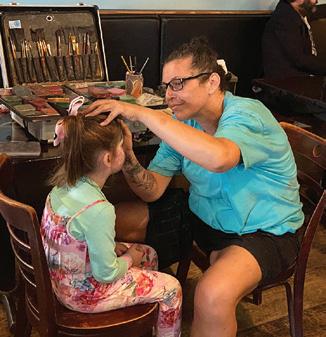

Feldman, JCDS chair, noted that “you cannot have a strong Jewish community without a strong Jewish day school,” and lauded the JCDS for “what the school has done for my family.”







1000 Magazine St., New Orleans (504) 528-1941
This stunning Higgins Hotel rooftop bar and lounge with sweeping views of the New Orleans skyline is the perfect place to start — and finish — your night in New Orleans. Serving small plates, sandwiches and specialty cocktails.


3633 Annunciation Street, Uptown New Orleans (504) 354-9878
Stop by Jaryd Kase’s casual neighborhood spot for lunch, or get a grab-and-go from the market, even a full Shabbat dinner. The menu has Jewish influences with African and South American flavors, catering is available, and catch his pop-ups as well.

1403 Washington Avenue New Orleans (504) 899-8221
Ella Brennan said she didn’t want a restaurant where a jazz band can’t come marching through. Come for the legendary Commander’s Jazz Brunch, stay for the rollicking Louisiana charm and award-winning New Haute Creole cuisine.

209 Bourbon Street (504) 525-2021
The grand dame of New Orleans’ time-honored restaurants, Galatoire’s is a 119-year-old, James Beard award winning restaurant located in the heart of the French Quarter.
4734 Magazine Street, Uptown New Orleans (504) 510-2791
Newly opened Uptown burger restaurant serving fresh homemade burgers, hand-formed and made to order, specializing in creative burgers such as veggie burgers, lamb burgers, and tuna burgers.

921 Canal Street, New Orleans inside the Ritz-Carlton
M bistro’s menu is an indigenous approach to the preparation of the finest meats, seafood and produce from growers in Louisiana, Texas, Mississippi and Alabama.

Magazine
(504) 267-7357
Serving Israeli-inspired gourmet entrees using the freshest ingredients. Specialties include falafel, hummus, pita sandwiches, platters, kebabs, salads and much more. Catering available.

Magazine St., New Orleans (504) 528-1941
The Higgins Hotel’s full-service restaurant, Cafe Normandie offers an elevated dining experience showcasing French-influenced cuisine. Open for breakfast and lunch, and Sunday brunch.

A project of Knesseth Israel in Birmingham, the kosher food truck specializes in New York corned beef and pastrami, burgers, chicken, wings, salads and smoothies. Schedule on the website. jjsandwichshop.com (205) 547-0272 JJ’s Sandwich Shop

After pop-ups and availability in local independent groceries, Bayou Bagel is now open Uptown, with bagel sandwiches and more, using the best Louisiana ingredients to make amazing Louisiana bagels.

3519 Severn Avenue, Metairie (504) 888-2010
Kosher Cajun New York Deli & Grocery has authentic New York specialties — all Kosher certified. Enjoy classic eats like Reubens and matzah ball soup, plus kosher grocery staples too.

Since 1991, Bud’s Best has been known for its Little Cookie with Big Taste, with almost 20 varieties of mostly bite-size cookies, under kosher supervision, available throughout the region. budsbestcookies.com, Birmingham (205) 987-4840

A Nashville favorite now in Birmingham, Thai Esane features authentic dishes from northeastern Thailand, such as drunken noodles, Pad Thai and Panaeng Curry. Open for pickup or delivery. Pizitz Food Hall 1821 2nd Avenue No. Birmingham

66 Church Street, Crestline Cahaba Heights • Downtown (205) 871-4583
The longtime community landmark is now under new ownership, at the original Crestline location, Cahaba Heights and Innovation Depot, serving bagel sandwiches, salads, pastries and wraps.


612 22nd Street So., Birmingham (205) 322-3330
A Birmingham classic, The Fish Market on Southside offers the freshest seafood around, live music and an oyster bar. Private and semi-private dining available, along with catering.

Birmingham’s only authentic Chicago deep-dish style pizza is now available in Hoover and downtown Birmingham, making everyone’s “best of” lists. Doordash delivery available, and they cater. 2801 Highway 150, Hoover 1304 2nd Avenue So., Birmingham (205) 403-9800

2146 Tyler Road (Bluff Park), Hoover 4424 4th Avenue So., Birmingham (205) 407-4601
Neighborhood hangout and sandwich shop established in Bluff Park in 2021, with a second location newly opened in Avondale. Wide range of sandwiches and flatbreads, craft beers and cocktails.
Henry S. Jacobs Camp alumni, families of current campers, and friends of the camp will gather in at least 15 communities on Nov. 16 at 11 a.m. for a celebration that includes the launch of its Capital Campaign, in collaboration with local synagogues and volunteers.
The event will celebrate the camp’s impact on Southern Jewish identity, feature a festive camp-style lunch, and a talk by a local host or camp leader. There will also be camp-style activities for kids, including a song session, Israeli dancing, and arts and crafts.
Locations for the kickoff include Gemiluth Chassodim in Alexandria, the Unified Jewish Congregation of Baton Rouge, Temple Emanu-El in Birmingham, B’nai Israel in Hattiesburg, Beth Israel in Jackson, the New Orleans Jewish Community Center, Beth El in Pensacola and B’nai Zion in Shreveport.
Registration is available at urj.tfaforms.net/1814.
The Birmingham Jewish Federation and Foundation announced that a $1,000 grant is now available for second or third year campers in the greater Birmingham area who attend a Jewish non-profit sleepaway camp. Funding is limited to the first 25 who apply, and is not need-based. To qualify, register for camp, then send a copy of the camp registration to the Federation, along with the camper’s year. The grant will be paid directly to the camp.
First-year campers are eligible for the Goldring Jewish Summer Camp Experience, which offers a one-time grant of up to $1,500 for first-time campers attending a non-profit Jewish sleepaway camp. Eligible campers for the Goldring grant are in grades 1 through 9, and live in Alabama, Mississippi, Louisiana, Arkansas or the Florida panhandle.
The incentive program was initiated by the Jewish Endowment Foundation of Louisiana in 1999 and has been funded by the Goldring Family Foundation since 2001. Over 1,800 children have taken part.
Birmingham’s Jewish community will hold a Summer Camp Fair and Reunion on Dec. 7 from 3 to 4:30 p.m. at the Levite Jewish Community Center. The fair will be an opportunity for experienced campers to reconnect with friends, and for prospective families to explore opportunities and meet with representatives from camps across the region. There will also be information on camp scholarships and incentive grants. Among the camps represented will be the Henry S. Jacobs Camp, Ramah Darom, Camp Judaea, J Camp, Barney Medintz and Dream Street.
Camp Dream Street Mississippi announced that Amelia Mann Halstead of New Orleans has been named chair of the board of advisors.
Dream Street is a program of the North American Federation of Temple Youth’s Southern region, and takes place at Henry S. Jacobs Camp in Utica each May. The free camp is for children with physical disabilities, ages 8 to 14, giving them the opportunity to do summer camp activities regardless of their circumstances. Campers include those with cerebral palsy, spina bifida, limb deficiencies, spinal cord injuries or developmental disabilities. The staff is mainly volunteers through NFTY chapters in the region.
Dream Street celebrated its 50th anniversary in 2024.
Halstead has been involved in numerous organizations, including the Make-A-Wish Foundation of Georgia, Jewish Children’s Regional Service and the New Orleans Section of the National Council of Jewish Women.
She plans to reach out to groups throughout the region, to publicize camper recruitment, staff recruitment and donor support.
Applications for the 2026 camp, which will run from May 25 to 29, will open in January.




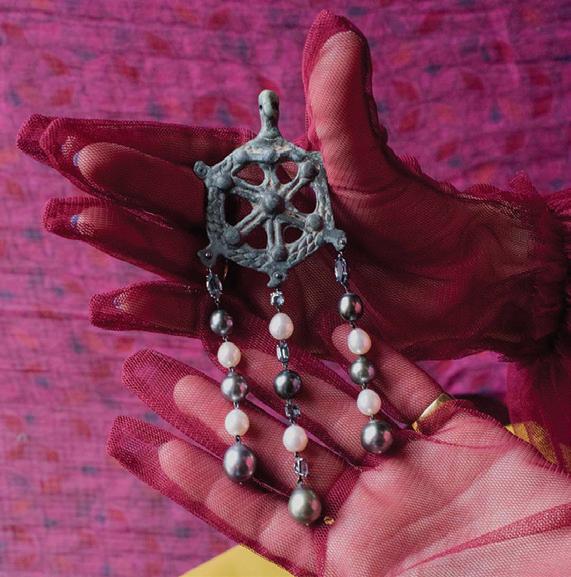
Collection reimagines ancient artifacts and historical objects as
Rebecca Rau has a long family history in art and antiques, but on Oct. 25, she put her own twist on that history with the debut of her “Then and Now” collection, a fusion of rare ancient artifacts and modern gemstones.
Critical (acclaim)
“He periodically spells my name right.” – Moses
“Yes, we gave him a graduate degree. We’re looking into it.” – chancellor, Jewish Theological Seminary
“Half of the things he says I said, I never said. Including this.” – his mother
“He knows more about Judaica than most, and you won’t find any of it in this book.” – his fourth-grade teacher
“I’ll deal with him.” – The Almighty Big G

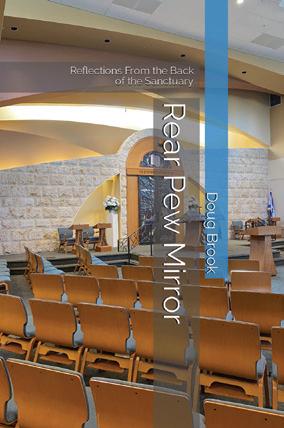

The pieces center on an object dating from 1200 BCE to 1880 CE, transformed into wearable art. The collection had a sneak preview at M.S. Rau in New Orleans, in advance of its official launch at New York Jewelry Week in November.
In terms of family art heritage, Rau is the fourth generation on her father’s side of the family, known for the M.S. Rau gallery, now run by third-generation Bill Rau. Her mother’s family had a longtime New Orleans-based jewelry business, Cotton’s.
The “Then and Now” debut coincided with the opening of M.S. Rau’s “Treasures of Tiffany: Icons of American Design,” which will be displayed from Oct. 25 to Jan. 3. The exhibit showcases over 75 pieces spanning 150 years, with rare masterpiece windows, lamps and jewelry from Louis Comfort Tiffany, and opulent silver and one-of-a-kind jewels from the world-famous Tiffany & Co.
Rau grew up surrounded by the gallery’s fine art, rare antiques and jewelry. She said she always has had a creative aesthetic, it was just a matter of “searching for the right medium and the right craft to pursue.” As a child she considered fashion school, as she developed elaborate Mardi Gras costumes, but pursuing fashion school “never felt quite right.” The experience did get her into the visual arts.
Her creative interest has “been more tactile,” and as she continued in the antique and jewelry industry, “the deeper my appreciation grew for objects — the craftmanship and history.”
She earned a master’s from Sotheby’s Institute of Art in London, and traveled throughout Europe and Asia to acquire rare jewels and art.
As she went around “treasure hunting” for M.S. Rau, she would sometimes find objects that she found interesting, but not necessarily for investors. Many of these items were intended to be worn, and she wanted to find a way “to bring them to life.”
It began as a side project, then “more intentionally” as she spent more time at gem shows, and would find “beautiful gems” that she felt deserved
to be in more unconventional settings.
“I’m drawn to the tension between resilience and permanence,” she explained. “These pieces remind us the concept of beauty is ever-evolving, but the handmade objects continue to have an immediacy and gravitas, particularly when they’ve survived many centuries.”
While she sometimes sees an object and has an immediate vision for it, “some of the more rewarding pieces” are ones that she acquired “because it spoke to me” even though she had no idea what direction to take, and it can take months to figure out how to work with it. “There’s a level of risk and commitment” in those acquisitions, but she has learned through her vast experiences to trust her eye.
Though she appreciates the stories and origins of the objects, she hopes her creations feel universal. “It’s about appreciating that to adorn oneself for spiritual purposes or status… is a basic human instinct we have been pursuing.”
Working on this collection has also given her a greater appreciation for ancient pieces. “The more I study the ancient world, the more I realize the technologies are mind-boggling, they are far more advanced than we assume or give credit.”
One piece, the Criss-Cross necklace, began
with a Bactrian amulet that is 3,000 years old. She preserved the green patina, and surrounded it with pink spinel, rubellite tourmaline, and sapphire, anchored by a baroque South Sea pearl.
The Glowing Glass necklace is formed from a 14th century Gothic glass and gold pendant. The Protectrice necklace is a 13th century Spanish gilt-bronze harness. At the heart of the Reimagined Jasper necklace is a first-century cut brown jasper fragment.
The New York debut will be on Nov. 20 from 5 to 9 p.m. at the Jill Newhouse Gallery, after which pieces will be available for private viewing by appointment at the Rebecca Rau studio in New York, or M.S. Rau in New Orleans.
For much of the past year, she has been in New York finalizing the collection, while as a Southern Jew, being amazed at being surrounded by so many Jews in the Diamond District.
While the official launch for the collection will be in New York, Rau felt it important to have the debut in New Orleans, at the gallery where she grew up. “The genesis of this was being in that building and studying the objects, spending the time in the library. So it feels right, starting off the showcase at M.S. Rau.”
That the store was opening a major exhibition
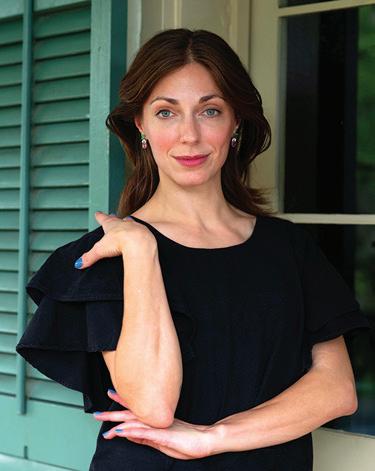
the same weekend makes it even better, even though “the aesthetics are very different.”
The collection is beginning with approximately 15 pieces on view, but she said the collection will continue to grow and evolve.


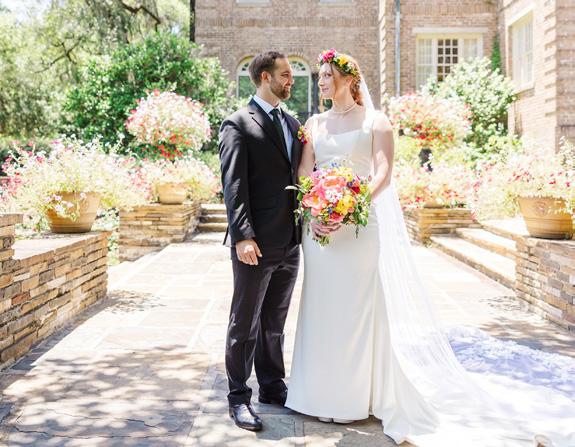

Ingredients
1 pound fresh salmon, cut into 2-4 pieces
Salt & pepper to taste
1/4 teaspoon garlic powder
Flour
1 tablespoon olive oil
1 tablespoon butter
1/2 cup dry white wine (original recipe has option of chicken broth)
1 teaspoon lemon juice
1/4 cup sun-dried tomatoes (see note)
1 cup heavy/whipping cream
1-2 cups (packed) fresh baby spinach
Instructions
Prep your salmon and sprinkle each piece on both sides with salt & pepper and garlic powder, then dredge the salmon in flour.
Add the oil and butter to a skillet over medium-high heat. Once hot, add the salmon. Cook the salmon for 3-4 minutes/side or until it has a nice crust (careful not to overcook — it should not be fully cooked yet). Take the salmon out of the pan and set aside.
Add the wine, lemon juice, and sun-dried tomatoes to the pan. Let it bubble for a couple of minutes.
Stir in the cream and let it cook for a couple more minutes. Reduce heat to medium-low and add the spinach to the skillet. Let it wilt for 30 seconds or so, then add the fish in. Cook for a few minutes until the salmon is cooked through and the sauce thickens up a bit.
Serve with the basil and fresh parmesan if desired.


By Lee J. Green
The Fish Market founder George Sarris said he has always appreciated the Jewish community, which has embraced him ever since he came over from his native Greece to Birmingham in 1969.
“We’ve been to the synagogues for so many special celebrations and services with our friends,” said Sarris. “They have made us feel like family and we are kindred spirits.”
He also said they’ve taken pride in providing fresh fish and catering/ event hosting for the Jewish community since starting the legendary restaurant in 1983. They moved to their current Southside downtown location in 2007.
Sarris’s son and The Fish Market Co-Owner Dino Sarris said they have
continued from page 46
service, he briefly left the bimah and returned with a step ladder so he could level the praying field.
At the synagogue where I currently teach (where “teach” equals “corrupt the minds of tomorrow’s leaders”), after the b’nai mitzvah lead the kiddush, the rabbi asks them whether it was wine or grape juice.
Spoiler: it’s grape juice. We like them enough to not give them Manischewitz. Nevertheless, I always tell them to say something akin to “2019 Cabernet.” Nearly a few have actually done it.
As of this writing, I don’t yet know if she’ll do as instructed. Though I can rest assured what melody she’ll likely pull out for Adon Olam.
continued from page 44
Doug Brook still has a few bar mitzvah thankyou cards to write – and will keep having bar mitzversaries until he finishes writing them all. To acquire both Rear Pew Mirror books, read other past columns, or listen to the Rear Pew Mirror podcast, visit http://rearpewmirror.com/ done kosher events at the synagogues and in people’s homes. They also have the fresh seafood market for those who want to take it home and prepare in their kosher kitchens.
“We did a whole bunch of salmons for our friends in the community for Rosh Hashanah,” said Dino Sarris.
He said they have been friends with the Slive family for years. This past summer they hosted the Bat Mitzvah for Anna Slive’s daughter. Anna’s father was former SEC Commissioner Mike Slive and The Fish Market provided shiva meals when he passed away in May 2018.
Sarris said they have hosted and catered many kosher and kosher-style celebrations over the years. At the restaurant, they have rooms that can accommodate a small group or up to 100 people.
The Fish Market also imports antiques from Greece and neighboring countries to sell at the restaurant, including pottery, urns, plates and bowls. They also sell some of their own seasonings and sauces.
Sarris said they always have the traditional favorites at The Fish Market, but regularly add specials to the menu that if popular become regular menu items, such as their new Tuscan Salmon.
“We always listen to our customers and if there is something that they want, we’ll find a way to get it,” he said. “We’re all about keeping tradition and at the same time, keeping it fresh.”

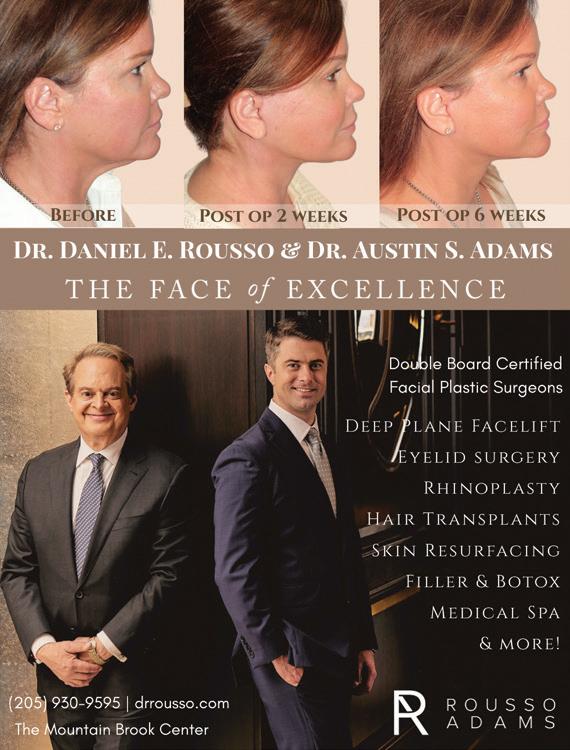


As first reported in the Torah, the Israelites wandered through the desert for 40 years and 40 nights.
In unrelated news, it was recently the 40th anniversary of my bar mitzvah. This is a remarkable milestone to reach considering I’m 26 years old. It’s well known that comedy works in threes, so it’s appropriate that my bar mitzversary turns a similar shtreimel trick.
First, my bar mitzvah has the anniversary of its date on the secular calendar. Second, it has the anniversary of its date on the Hebrew calendar.
That kind of duality is true for all b’nai mitzvah, but I have a third. Because my bar mitzvah occurred in the middle of Sukkot, it also has an anniversary of its holidate – the Shabbat in the middle of Sukkot, which isn’t the same every year.
Three anniversary dates for one bar mitzvah. Of course, this means three times the normal bar mitzversary parties and gifts. (Where “three times zero” equals “zero.”)
Forty is a big number for Judaism. Other fun 40s include Noah’s ark weathering the rain for 40 days, King David reigning for 40 years, and King Solomon reigning for 40 years, all of which combine to prove that when it reigns, it pours.
As it happens, these three bar mitzversary dates preceded by a few weeks the bat mitzvah of my 100th b’nai mitzvah tutoring student at my current synagogue. This is a remarkable milestone considering all 100 of them have been more mature than me.
When Adon Olam is done with your least favorite tune… on purpose
My students quickly – that is, approximately 10 minutes into the first class of their fifth-grade year – realize they’re more of a grown-up than the grown-up in front of them. Mayhem ensues, a small example of which occurred at the first Family Service I led this school year.
For context, the melodies for Adon Olam are as numerous as the stars in the sky. (At night.) There’s exactly one melody that I don’t like. The students know this, which turns out to be too much power in the hands of 11-year-olds.
At the end of me leading Family Service, they showed their gratitude for all my imparted experience and teaching by doing that melody.
These are good kids, though. So, minutes later when they again led Adon Olam, this time for the main service, I can report that they made it up to me by taunting me with that same melody a second time.
At this 100th student’s final session with me, she lamented her fivefoot-one height, saying that she didn’t think she’d ever get any taller than she’ll be at her bat mitzvah.
Helpful teacher and guide that I am, I tried to relate with her by saying that I never got any taller after my bar mitzvah. Of course, I was over six feet tall at my bar mitzvah so this wasn’t as reassuring to her as they told me in graduate school that I’m supposed to be with students.
I did, however, follow on with a related bar mitzvah highlight. While I was over six feet tall at my bar mitzvah, the rabbi was six-foot minus-ten at my bar mitzvah (probably also at his own).
When the rabbi did the traditional talking to me in the middle of the

